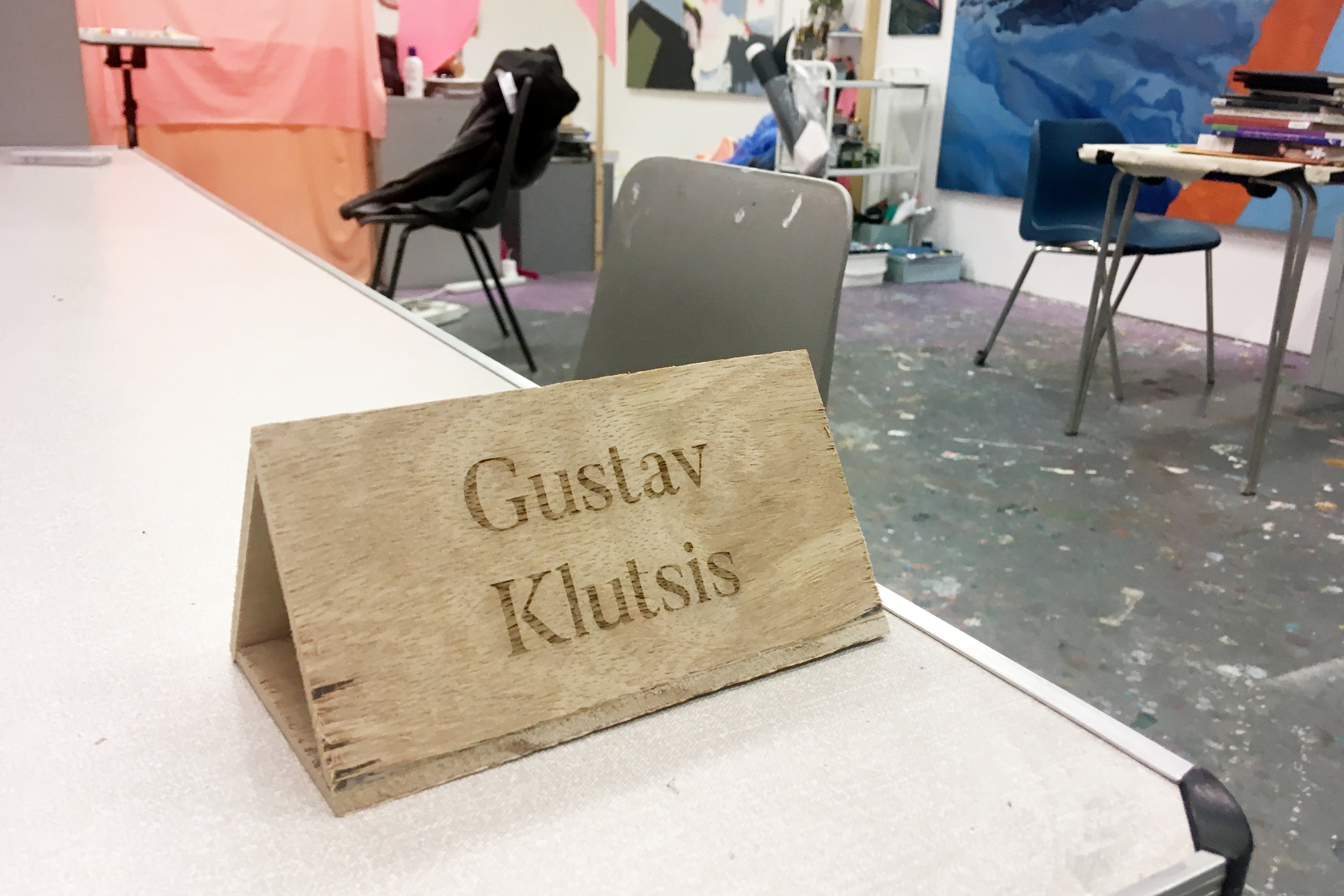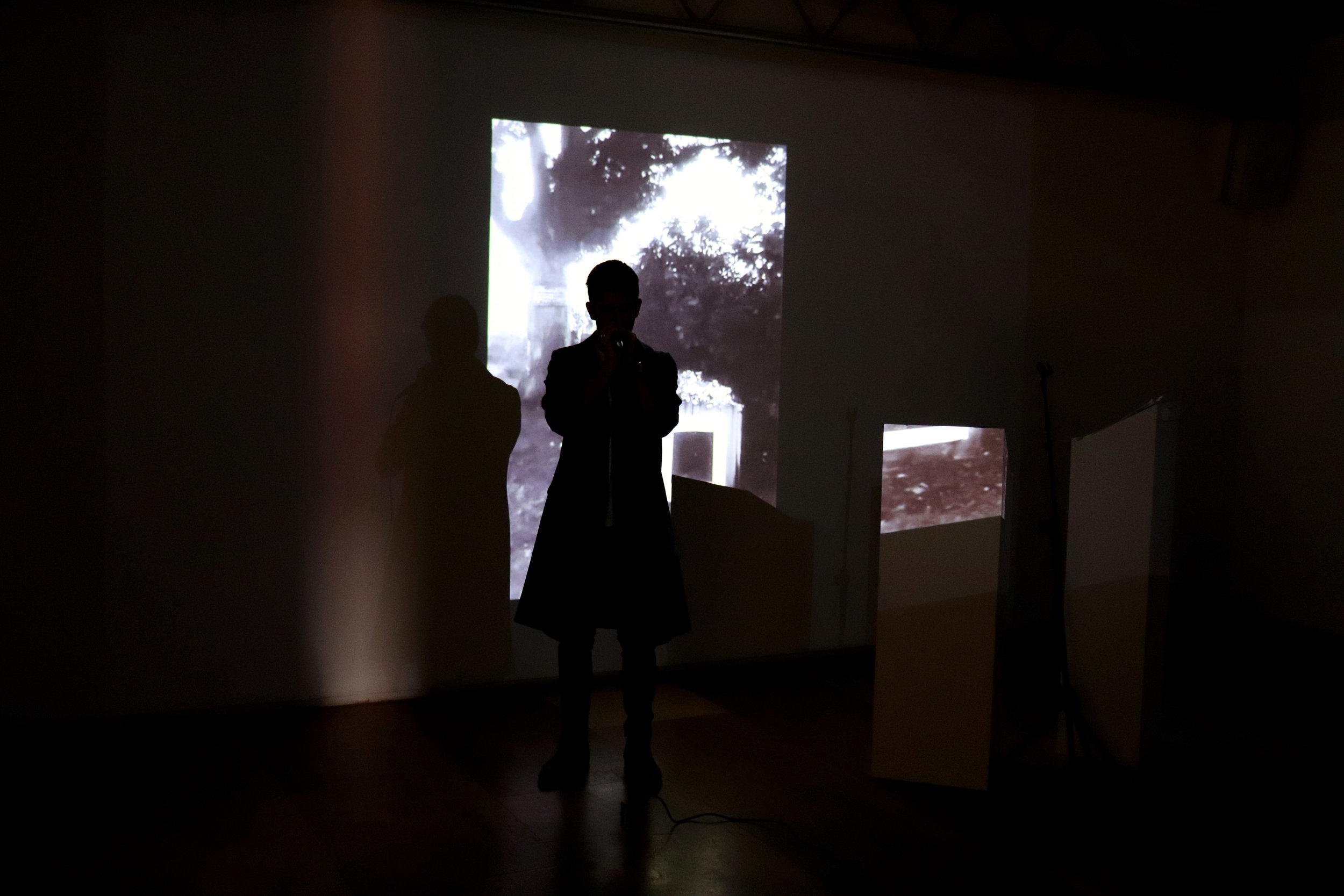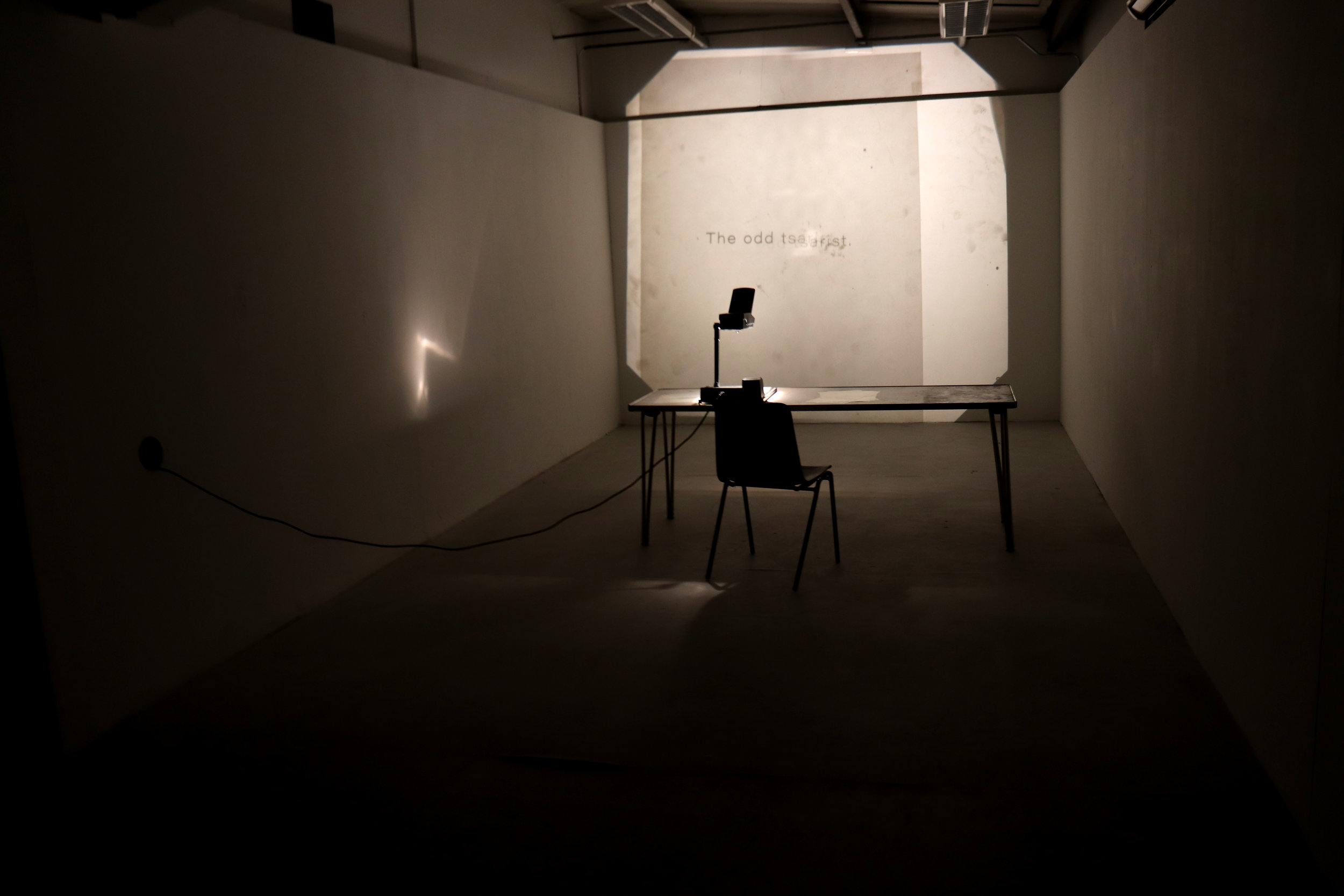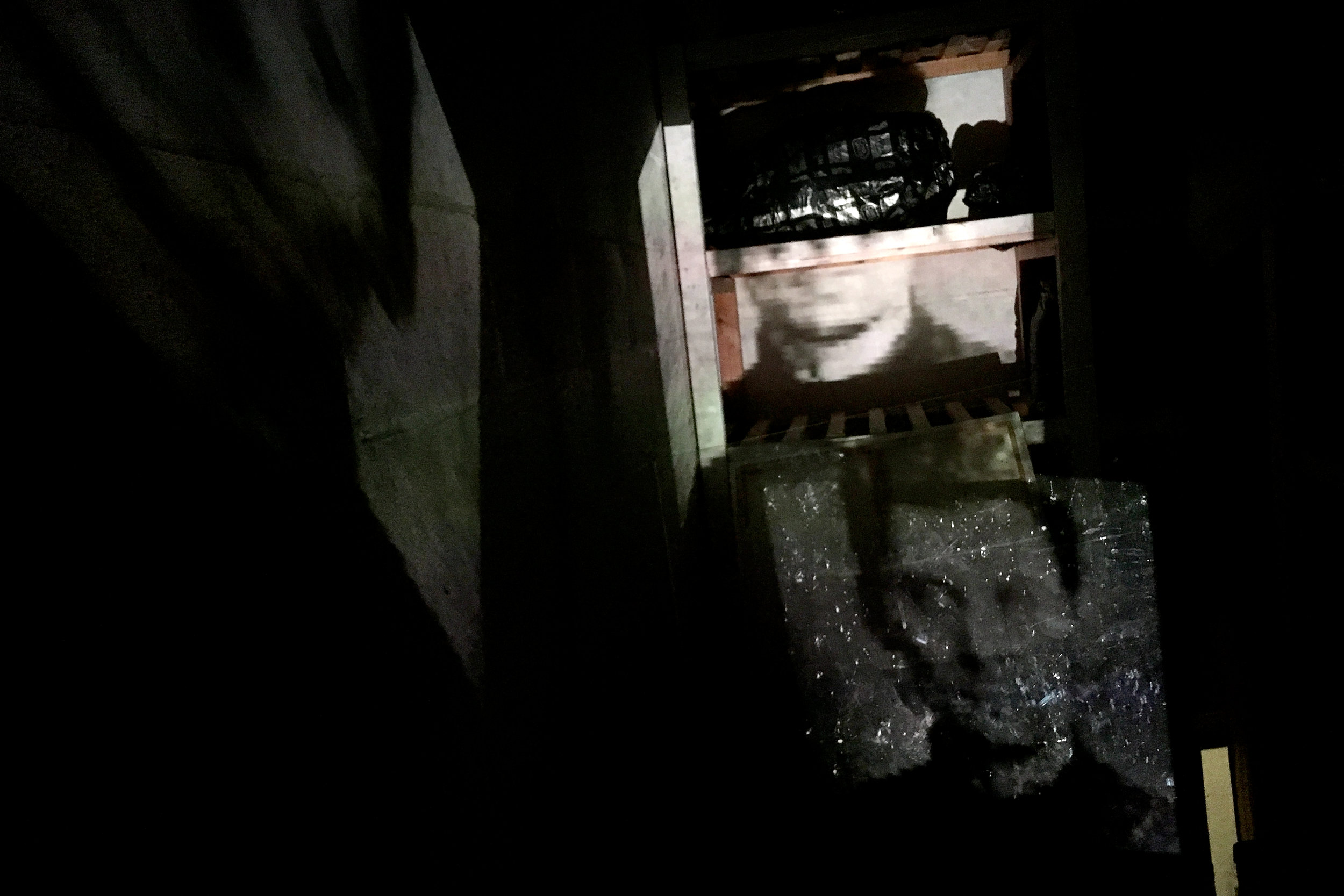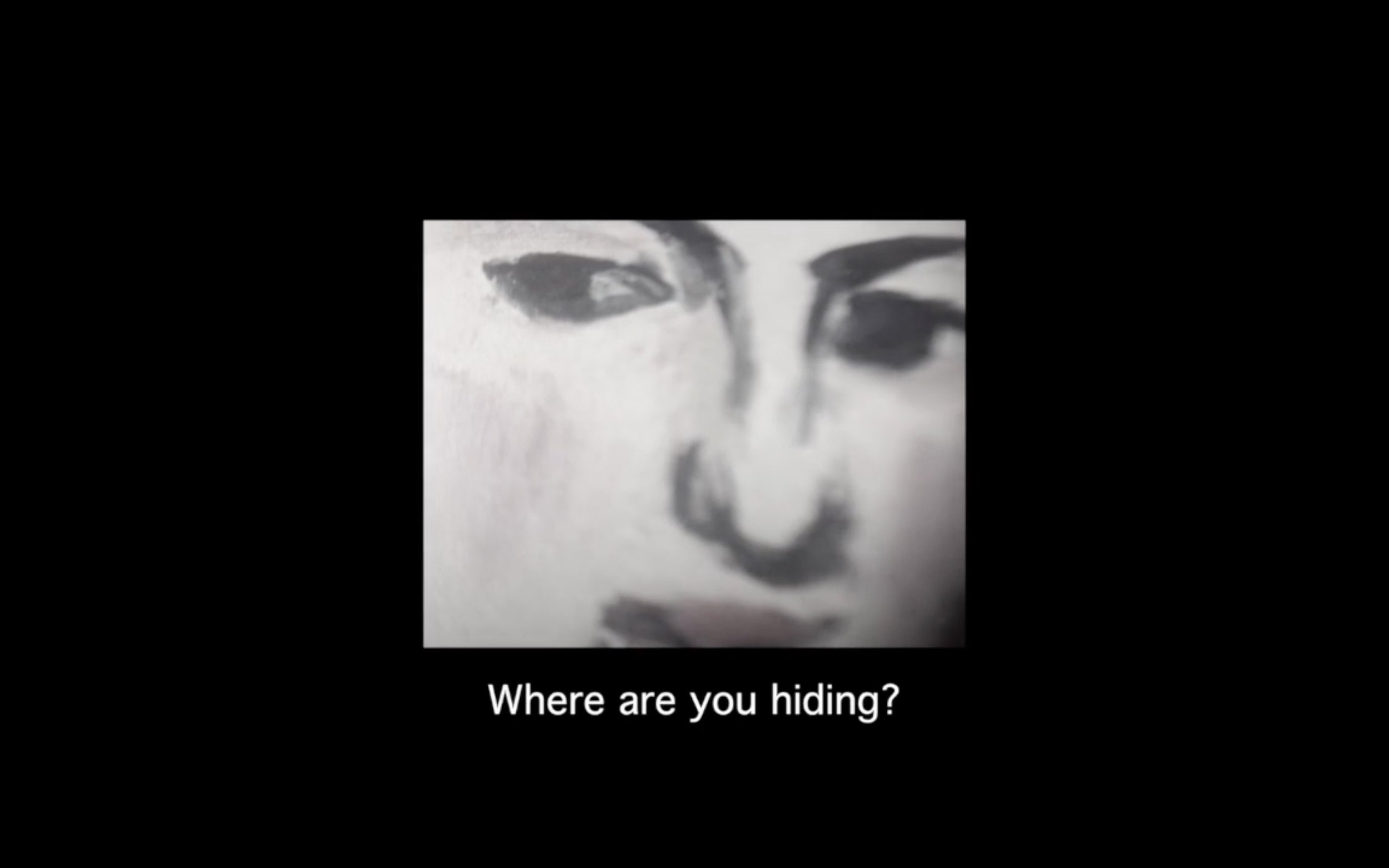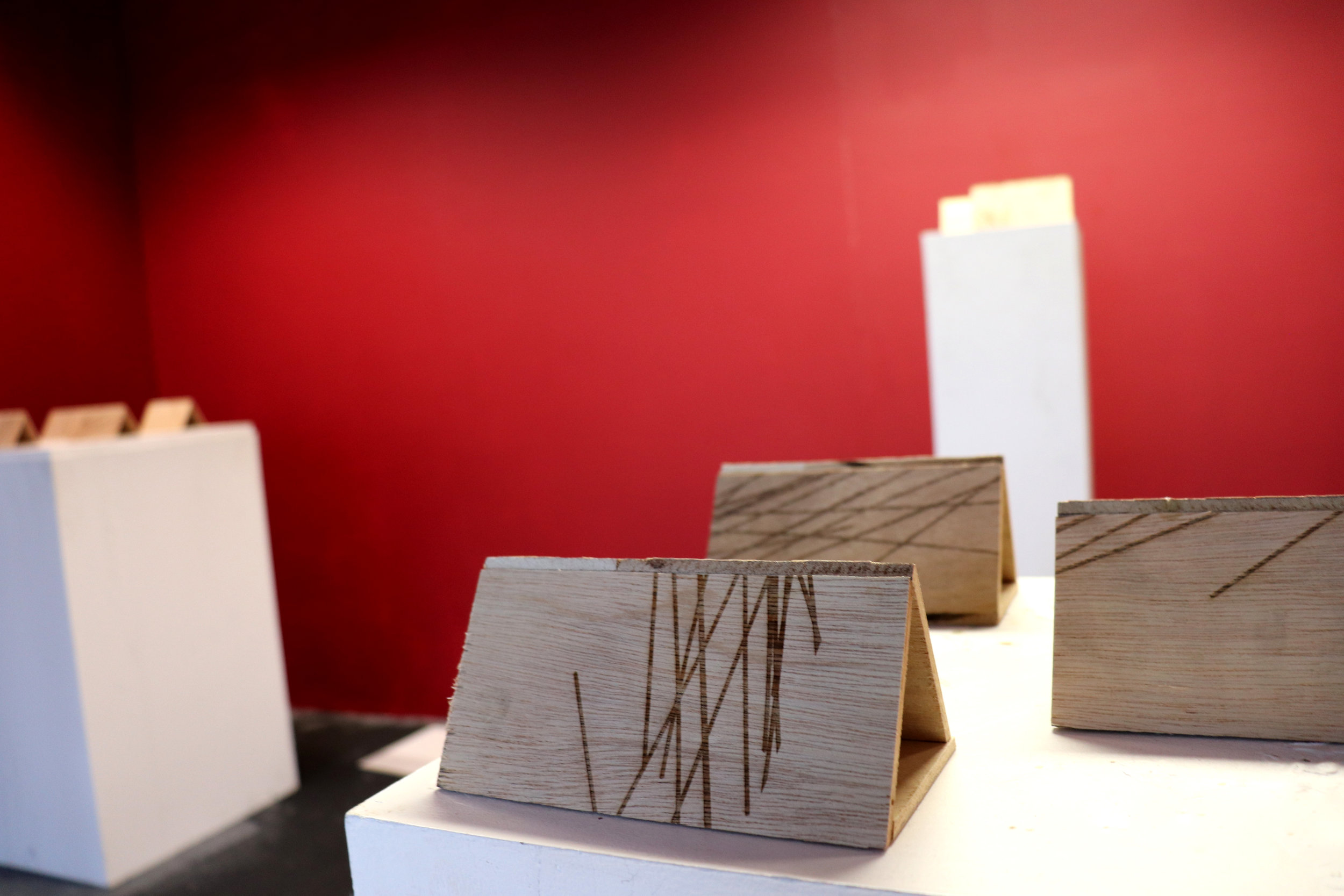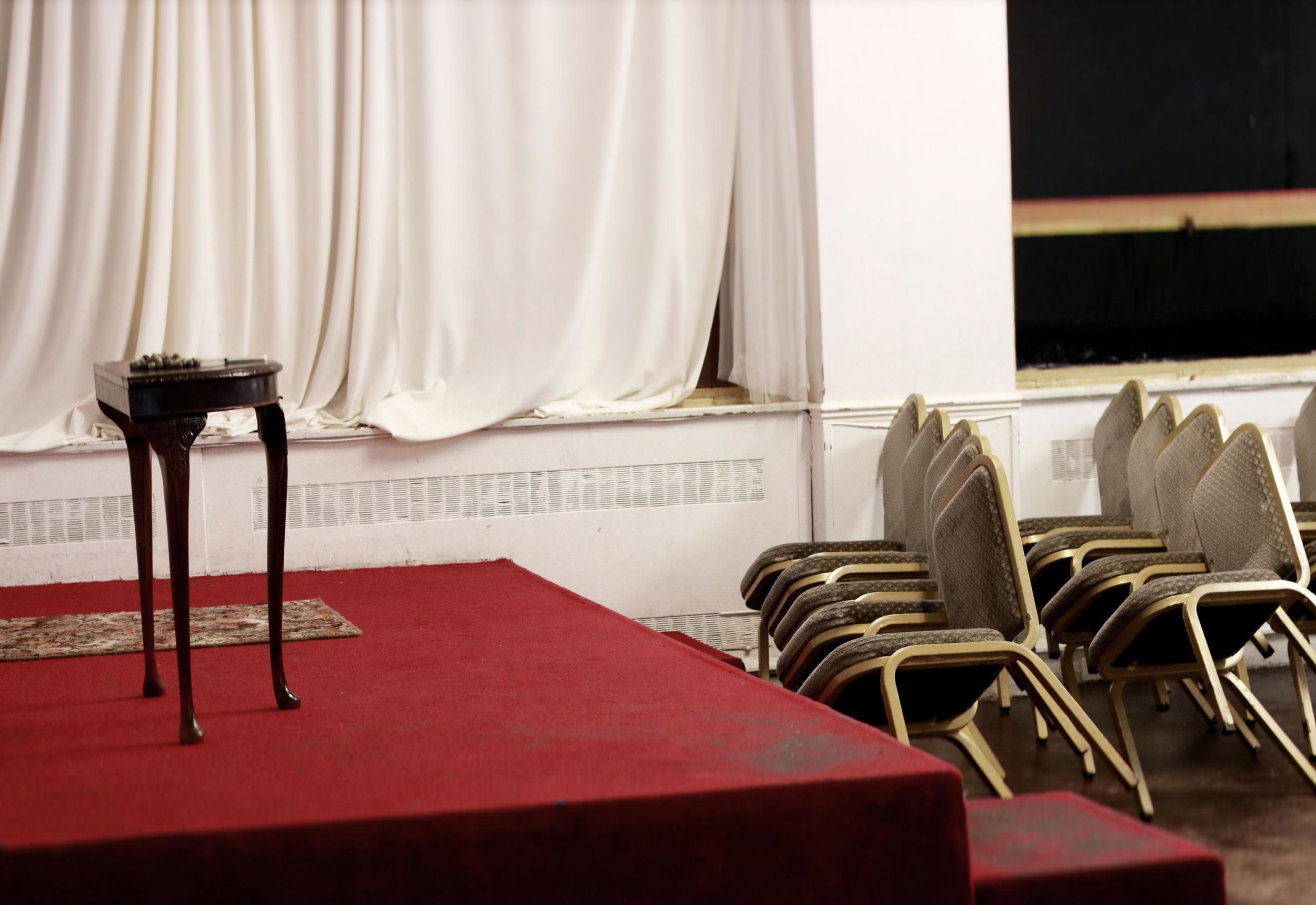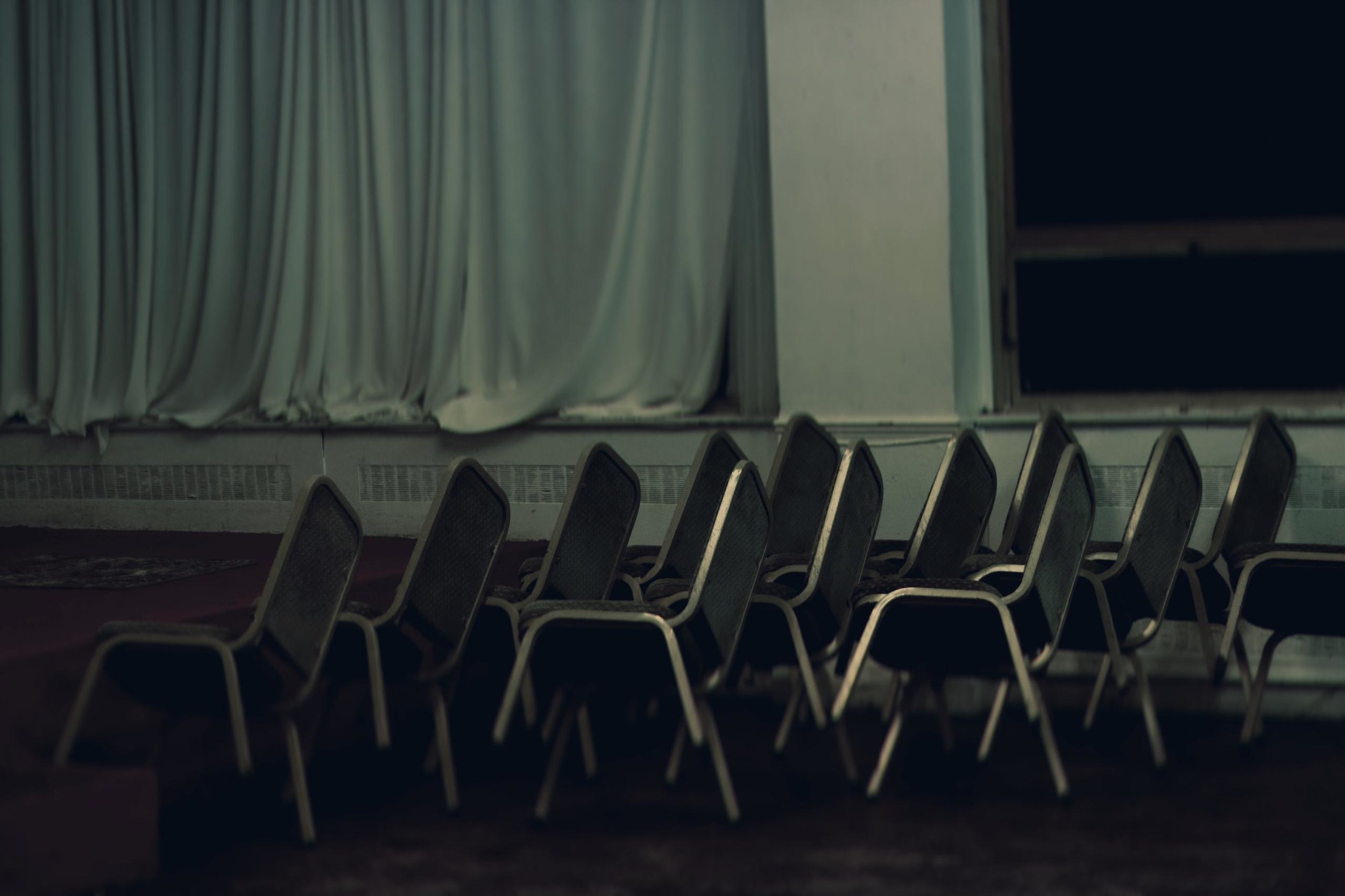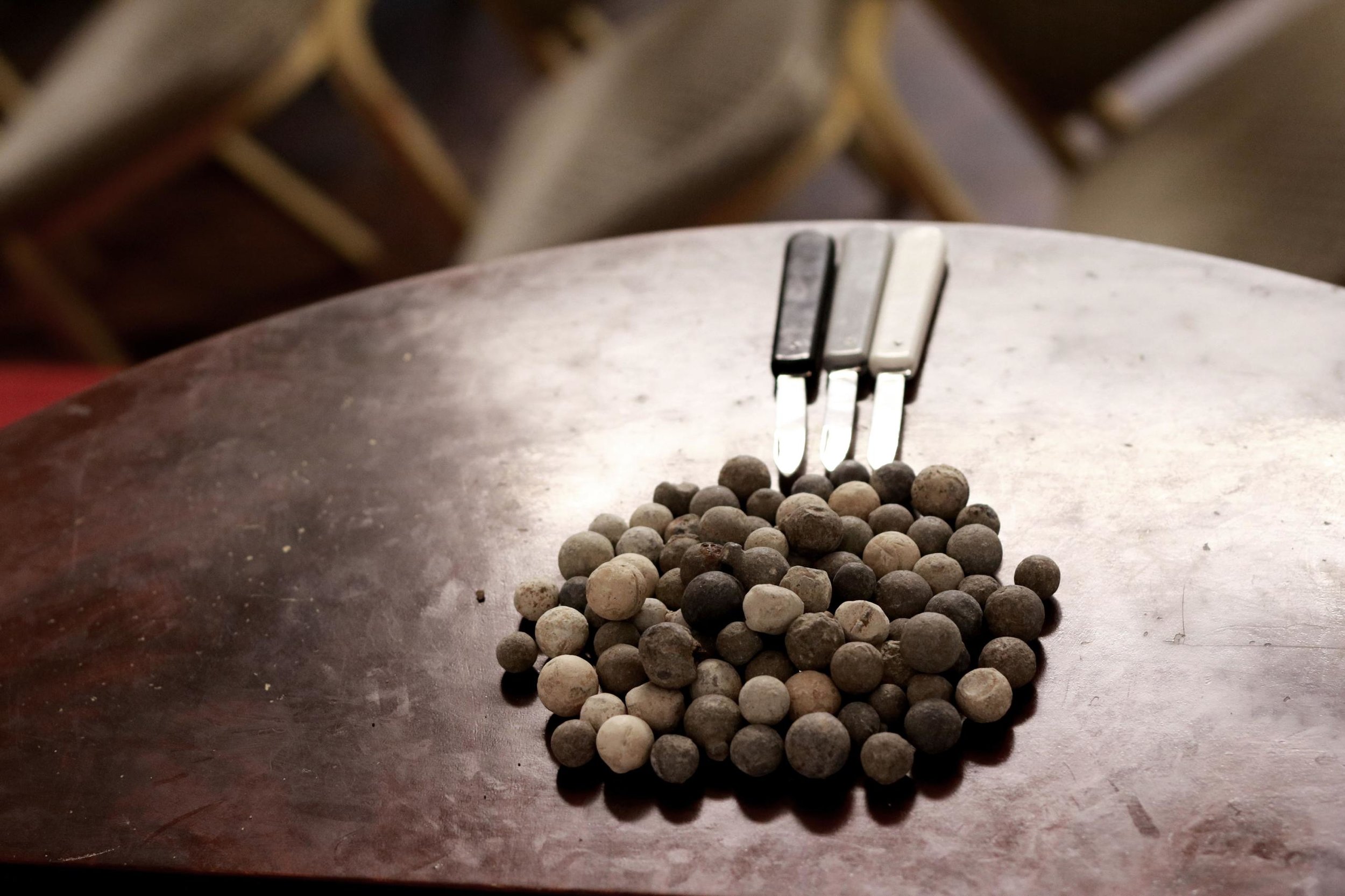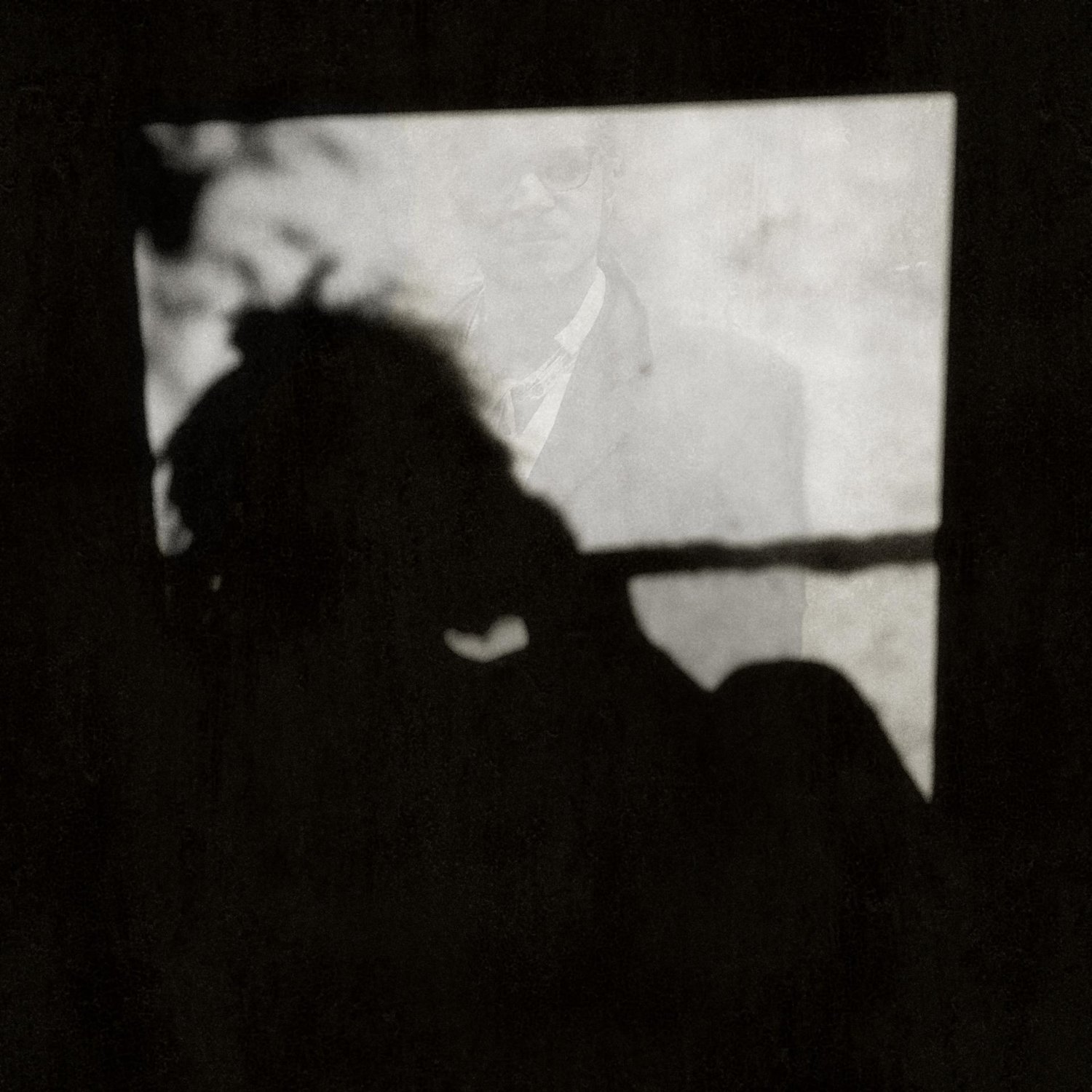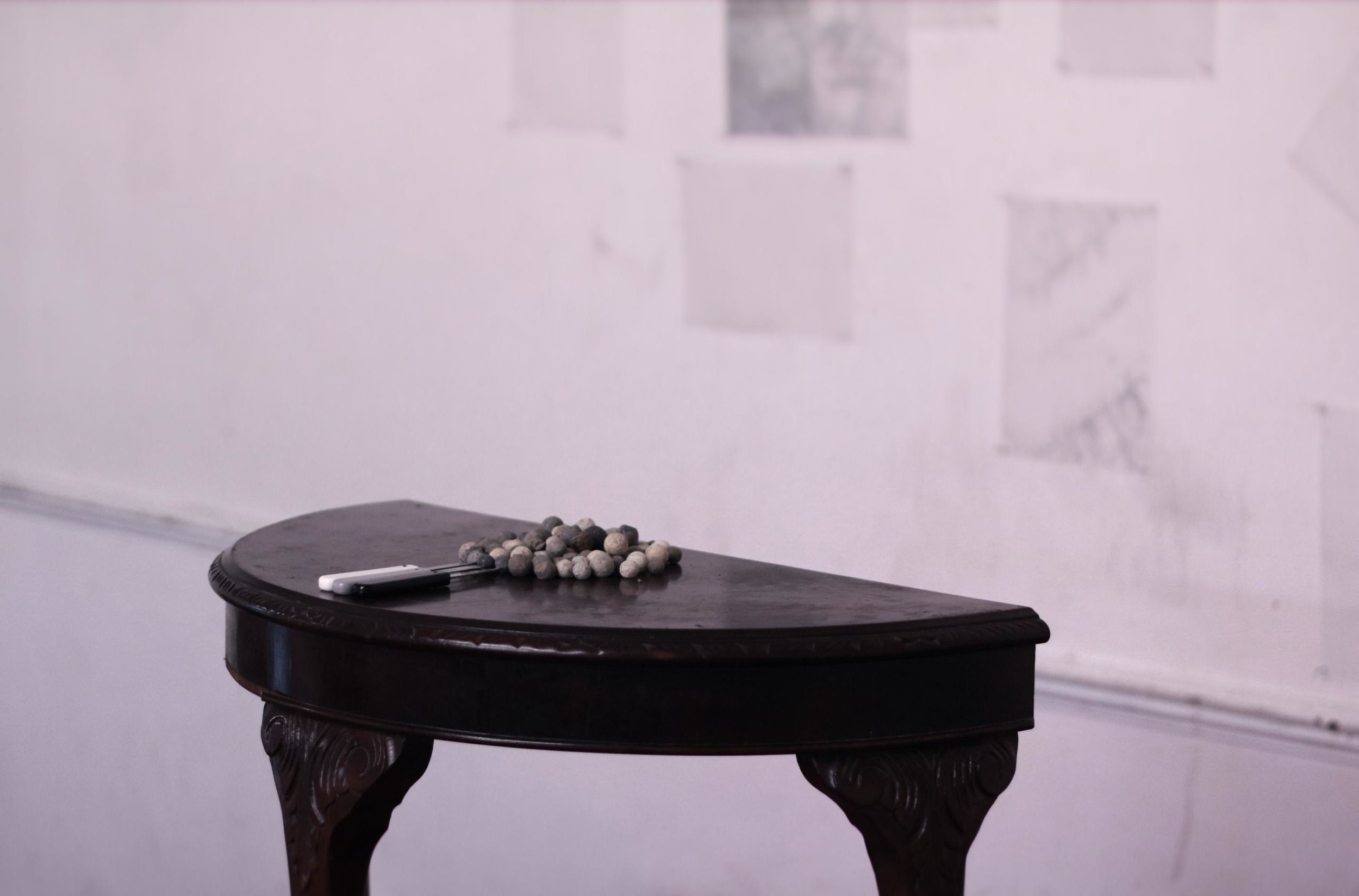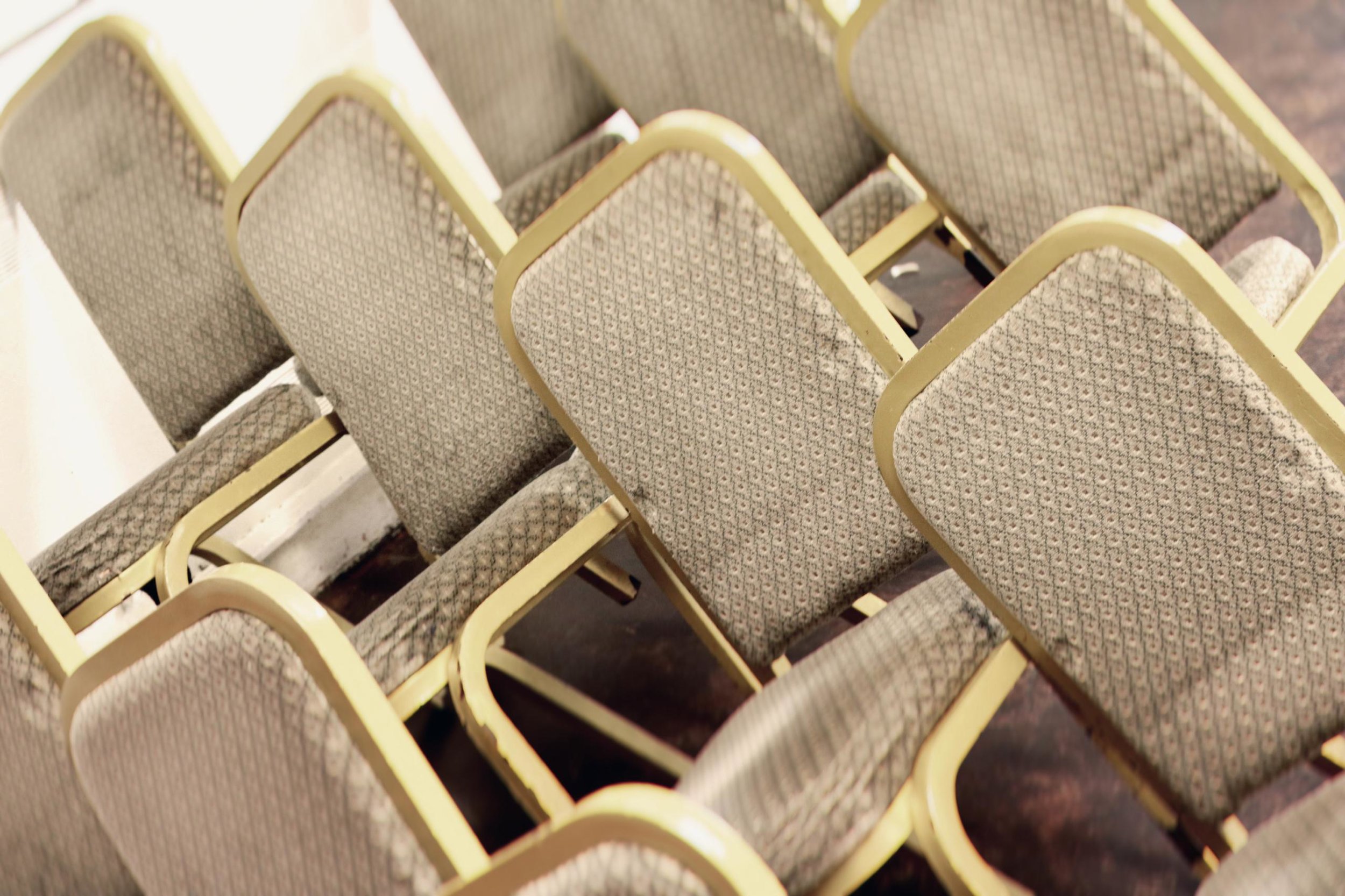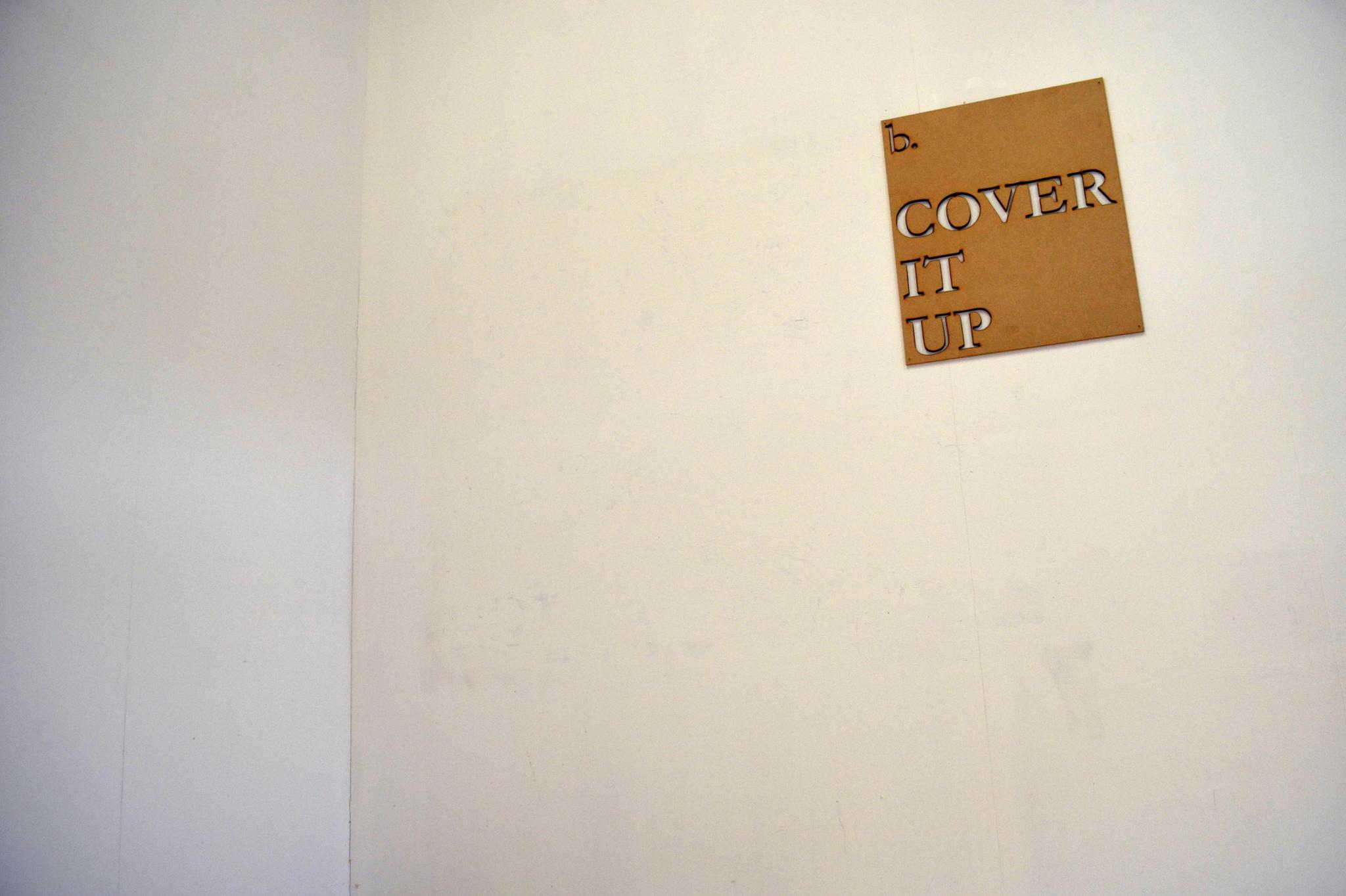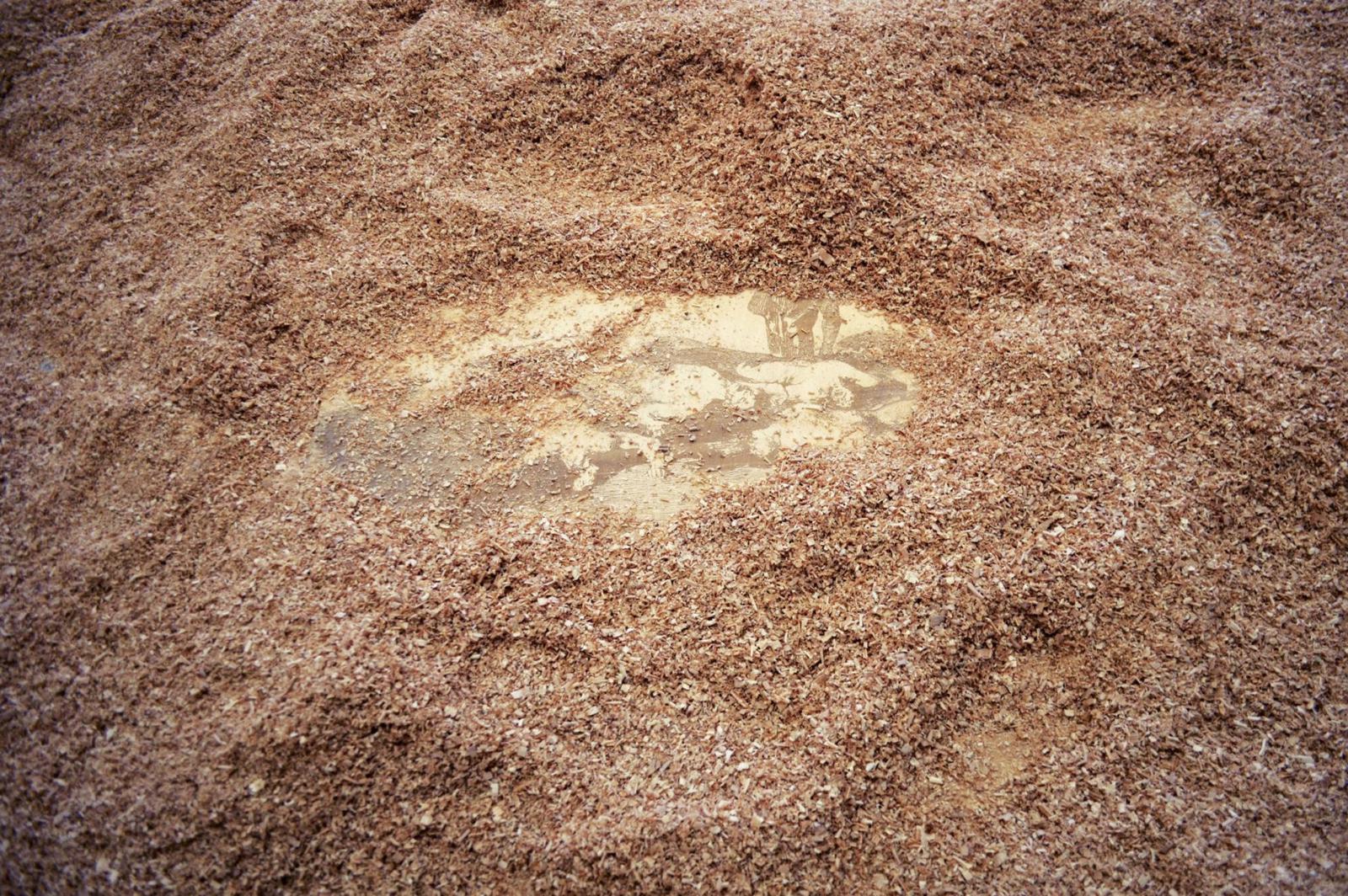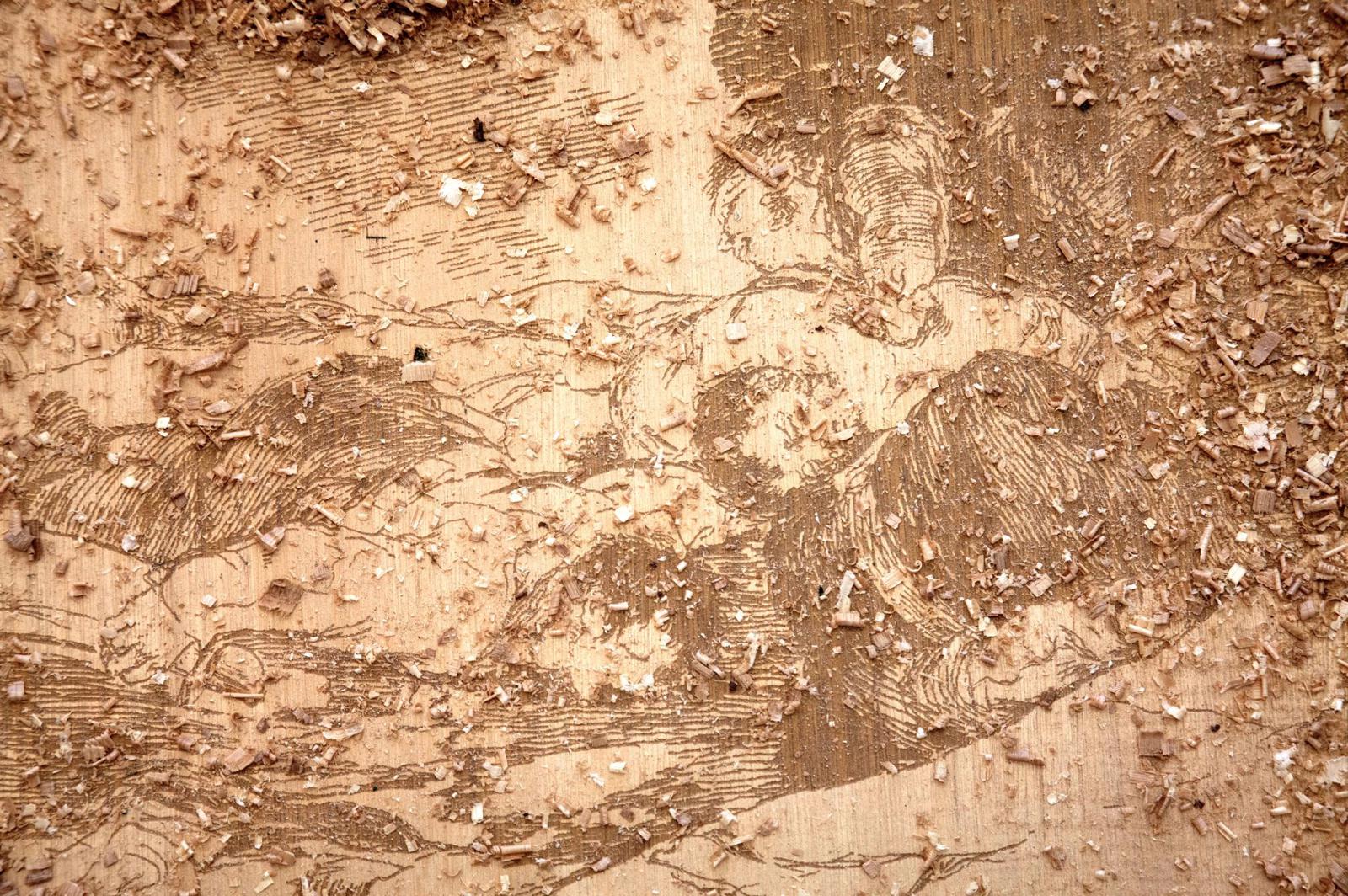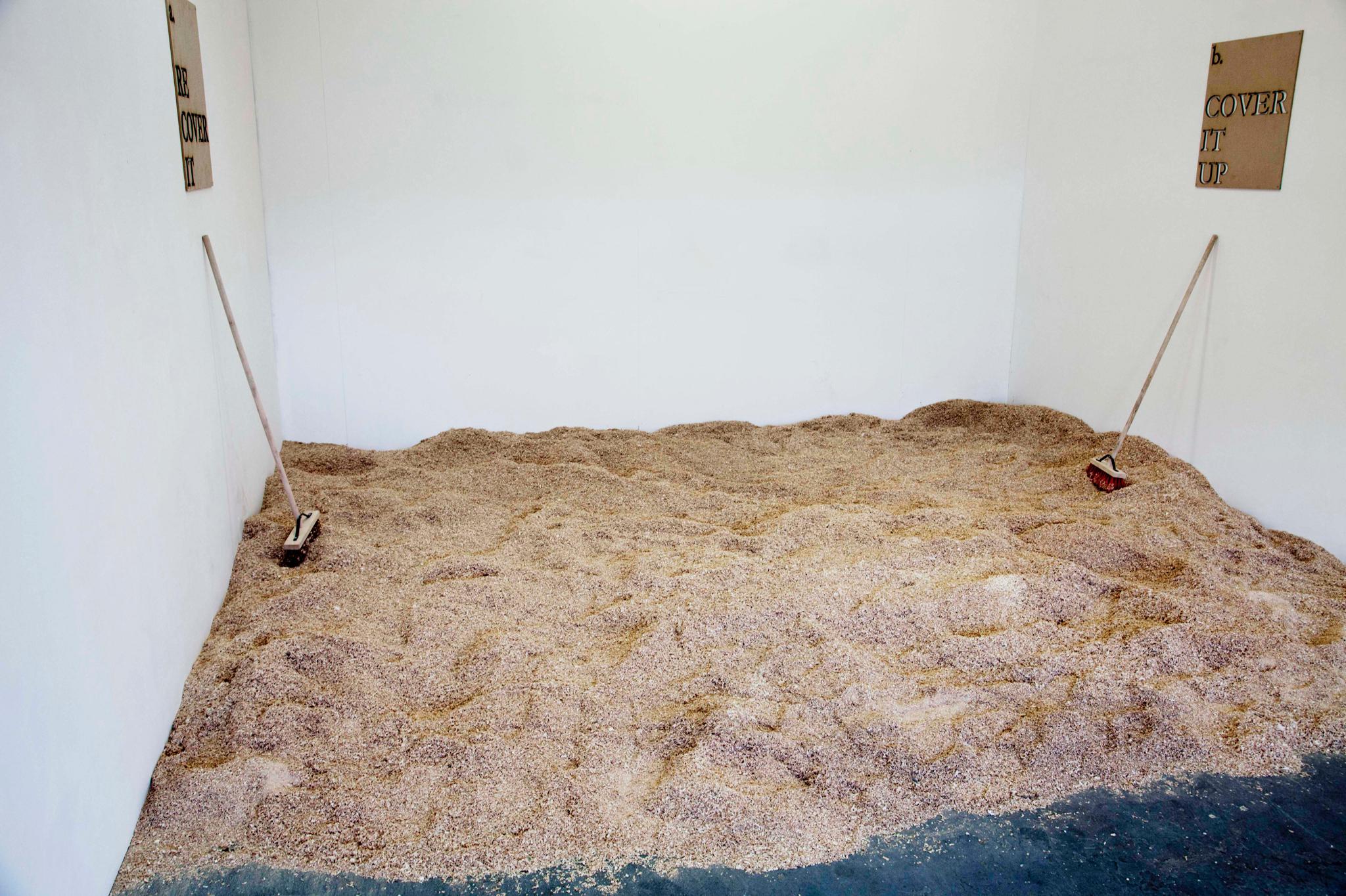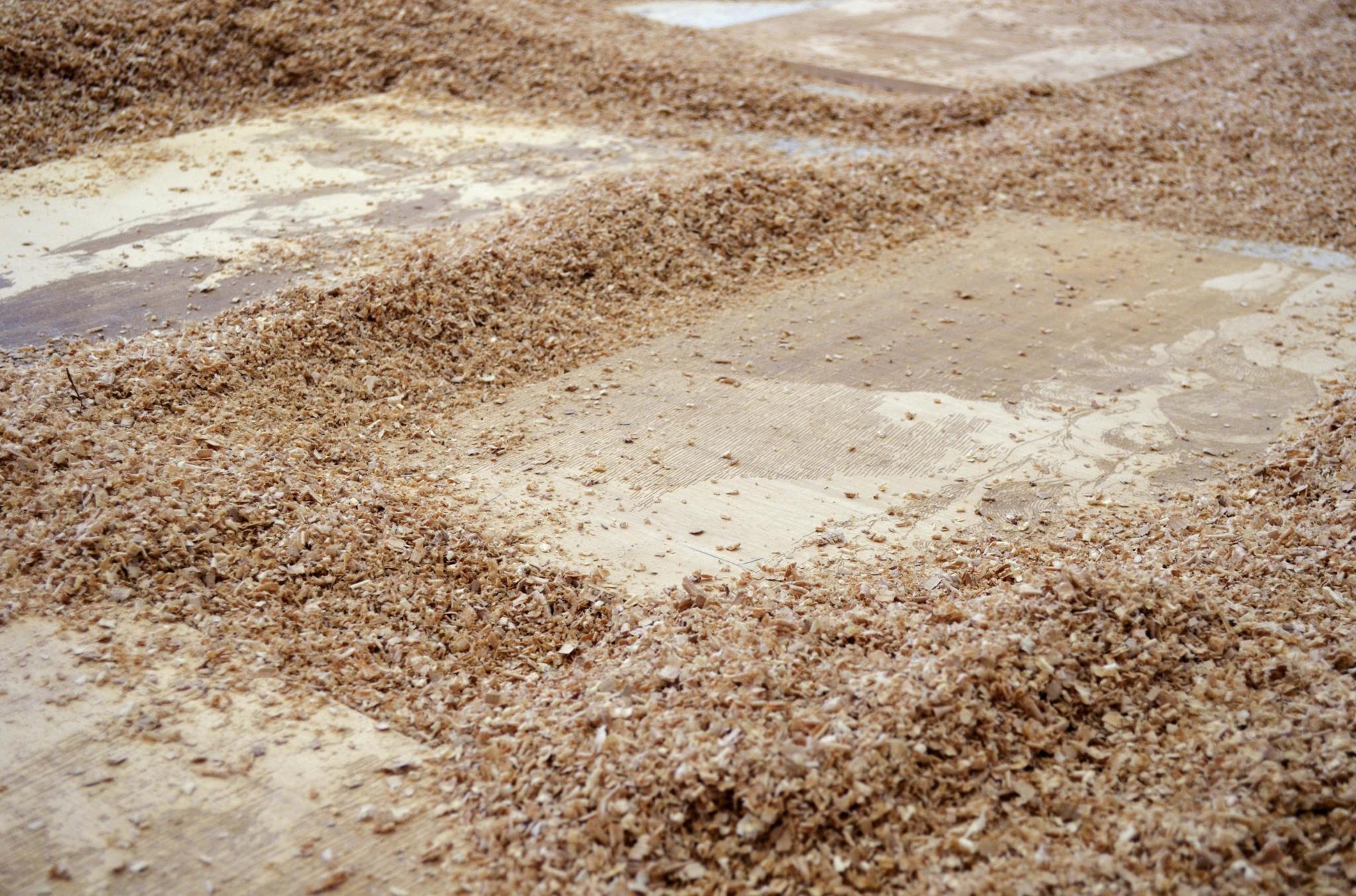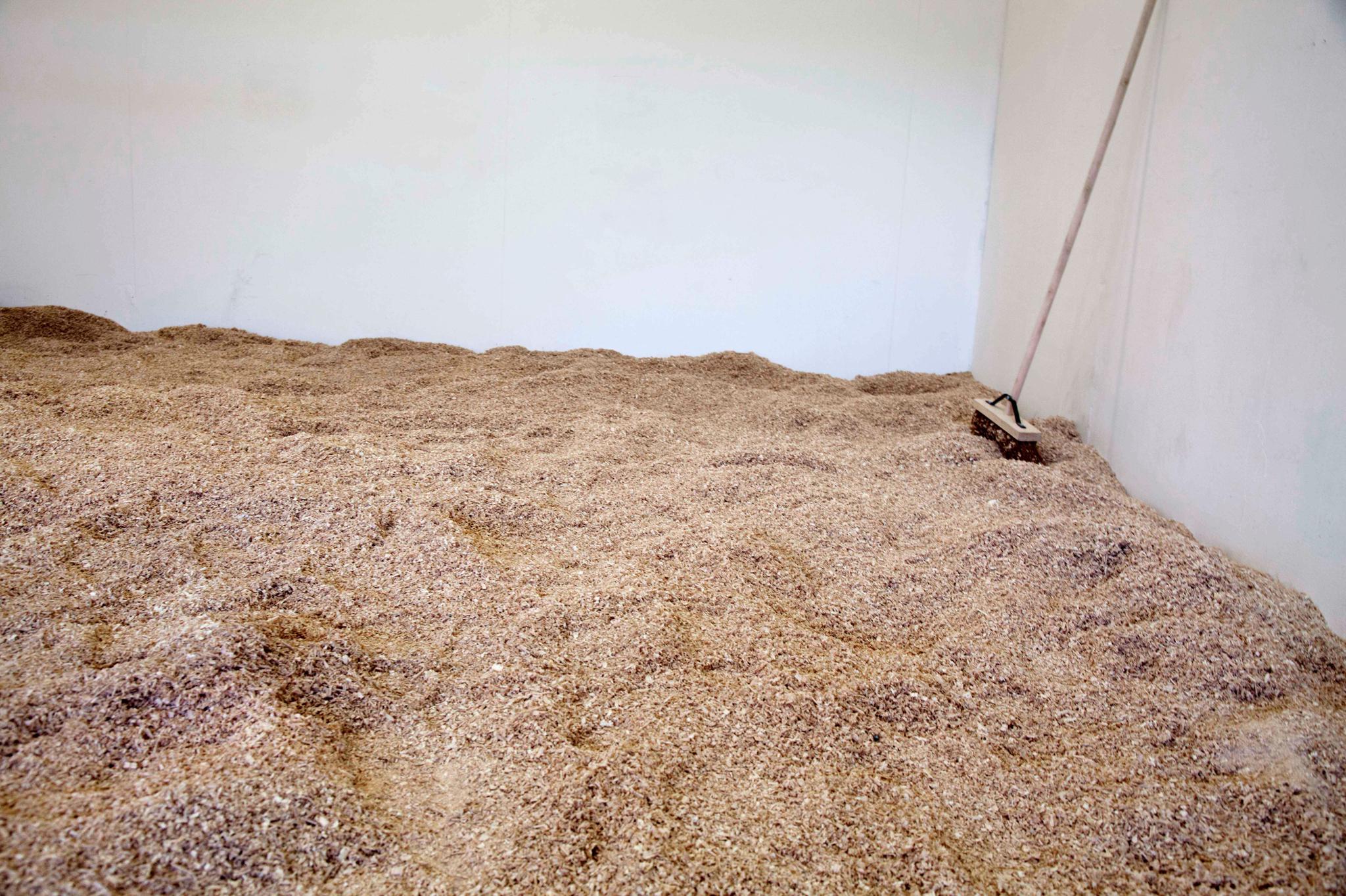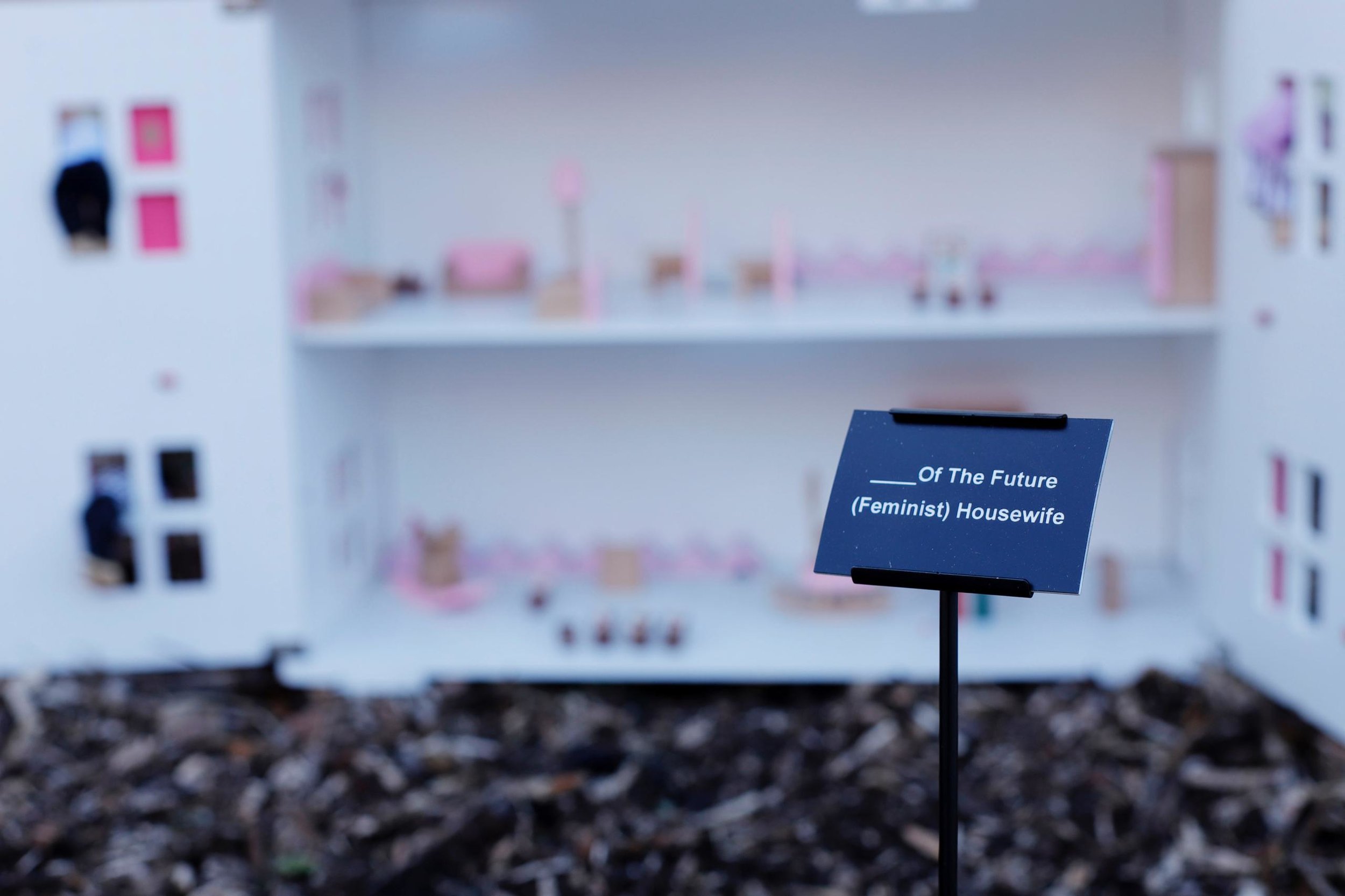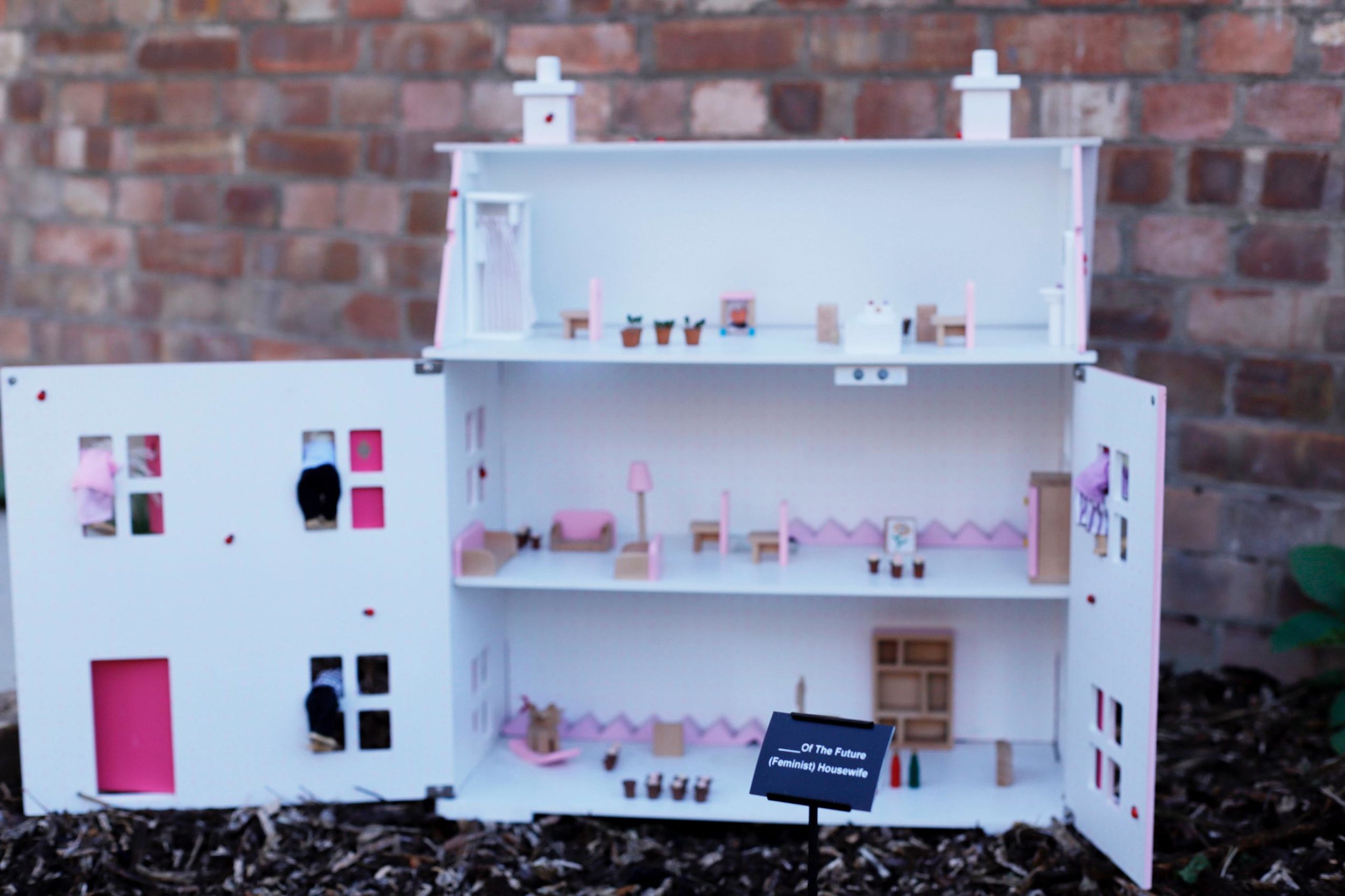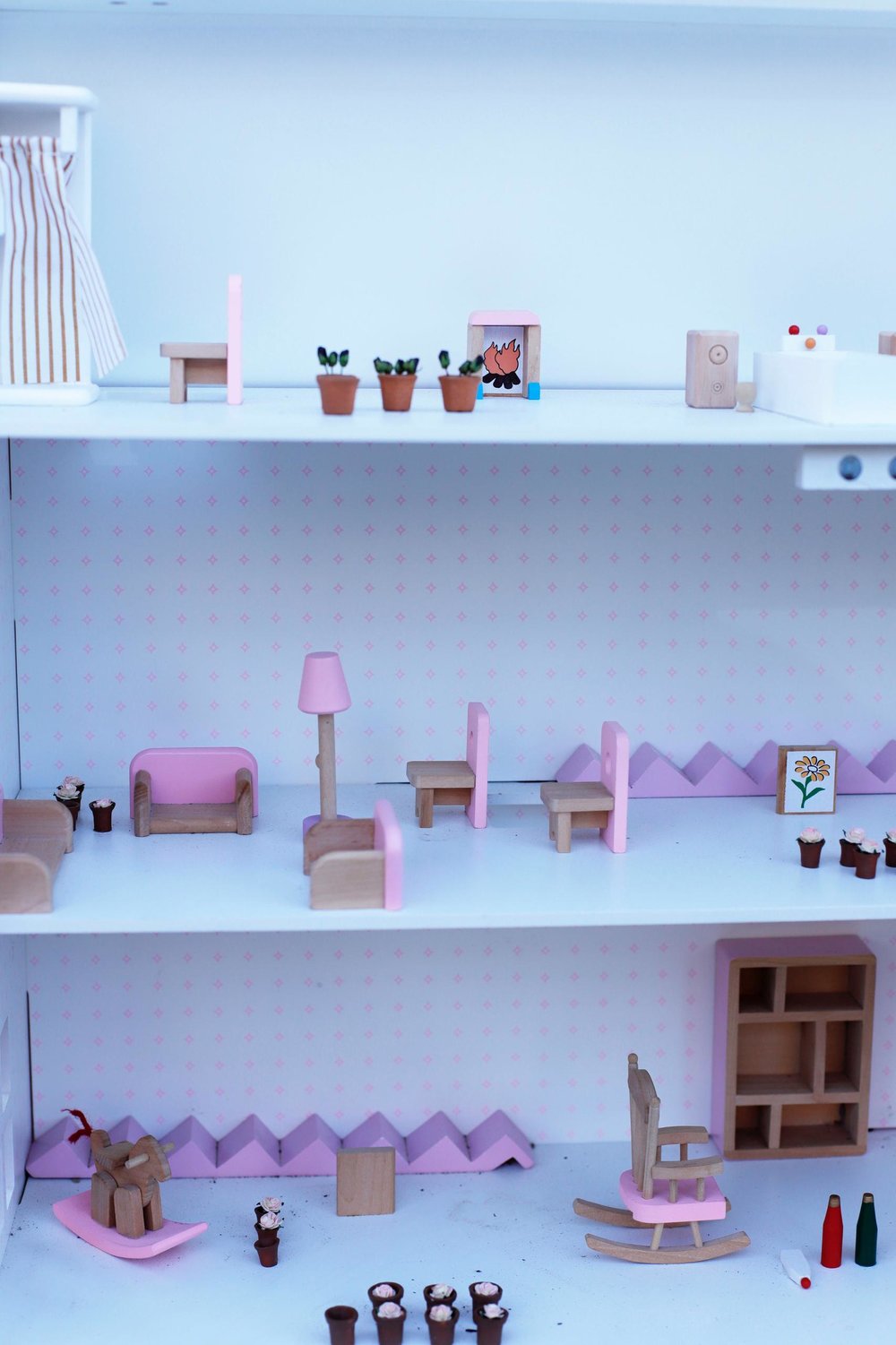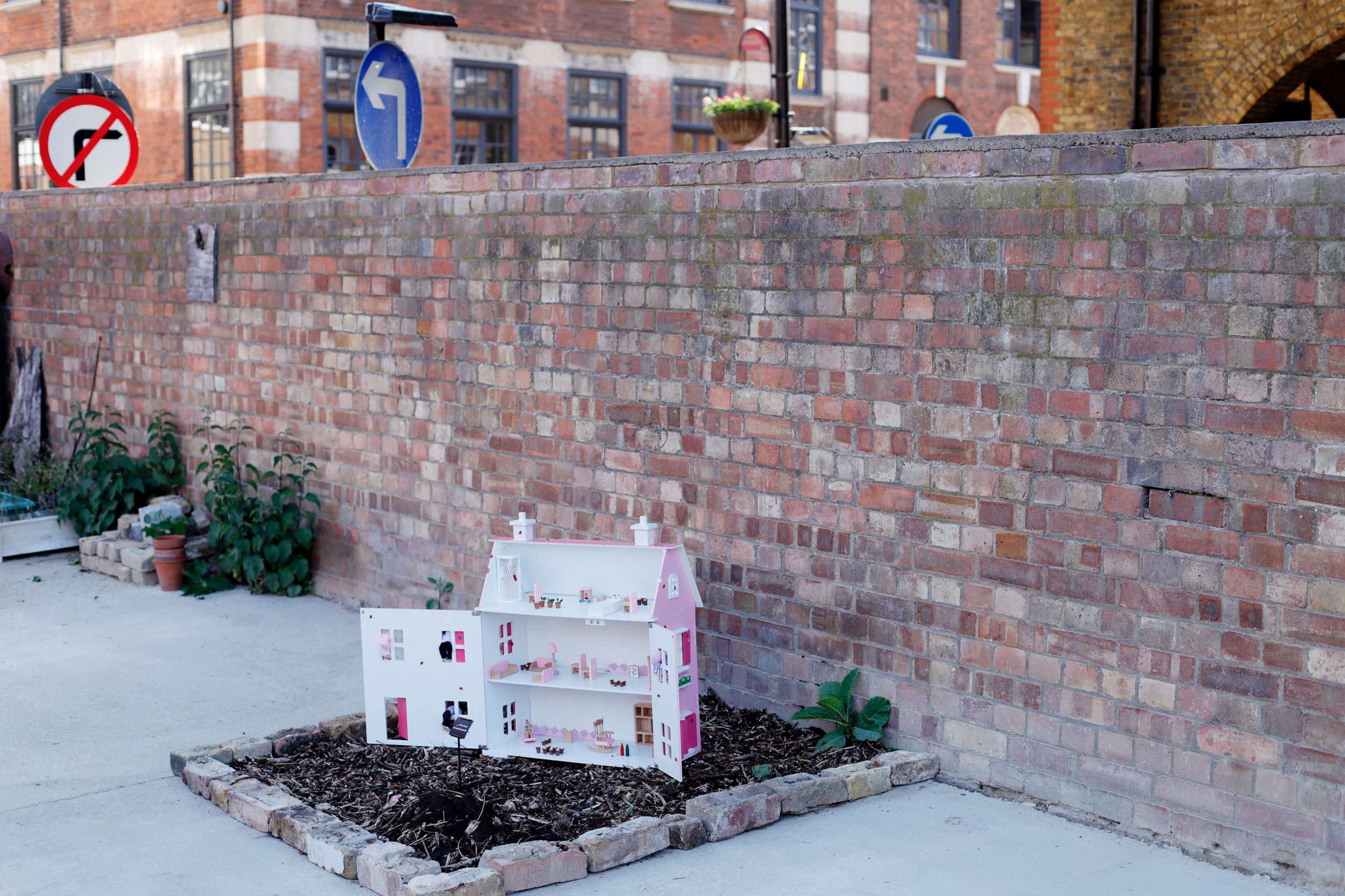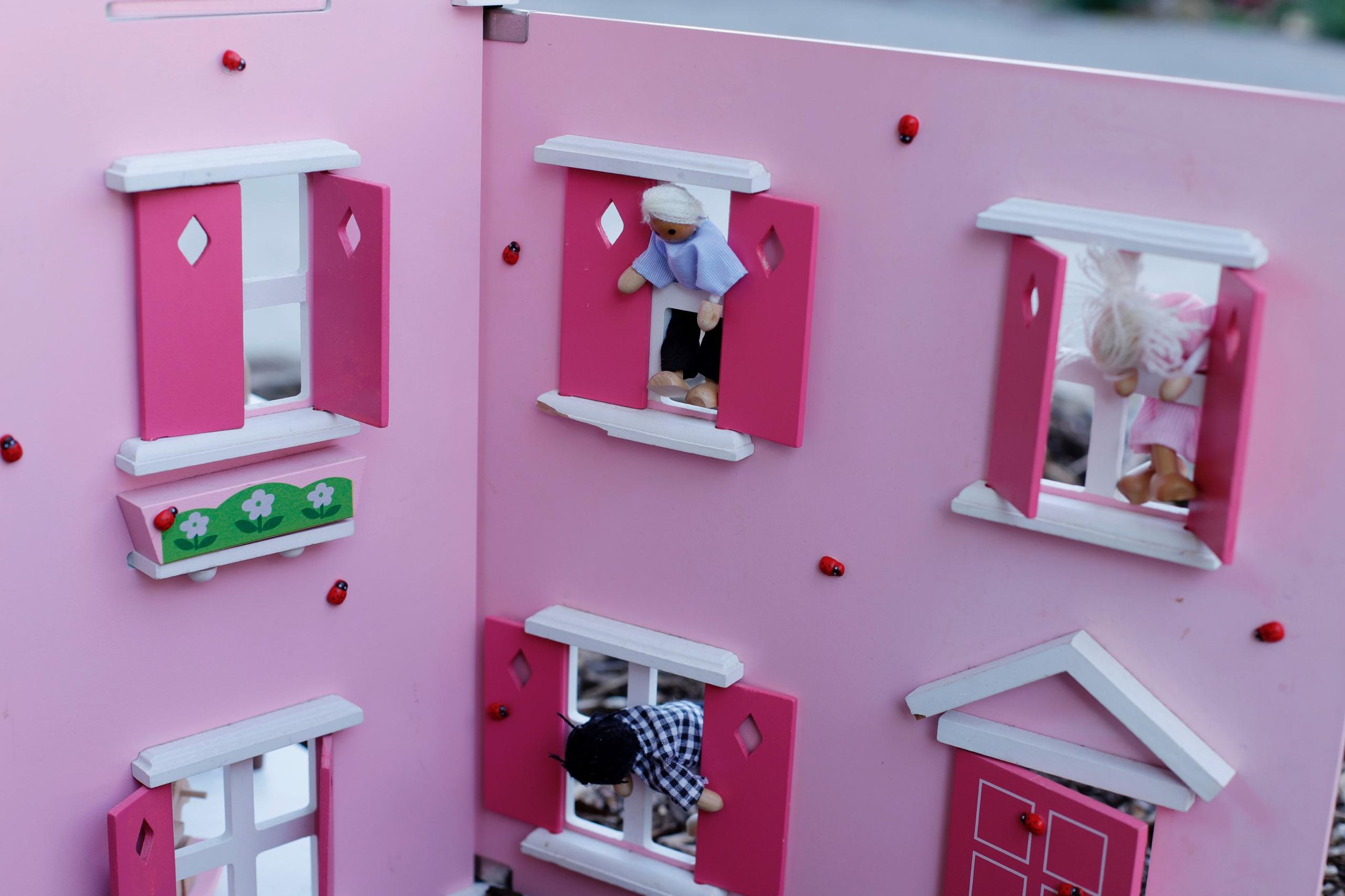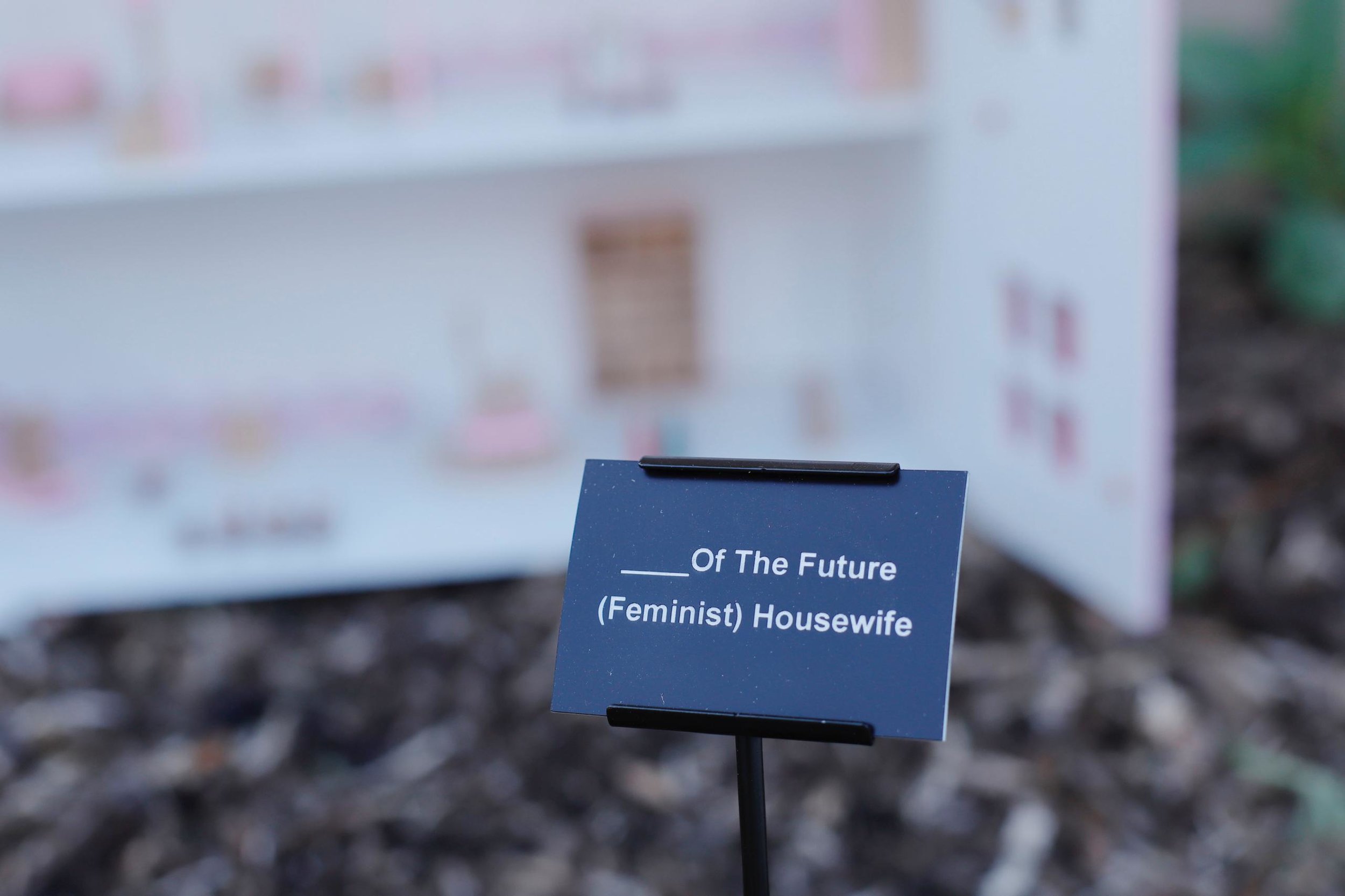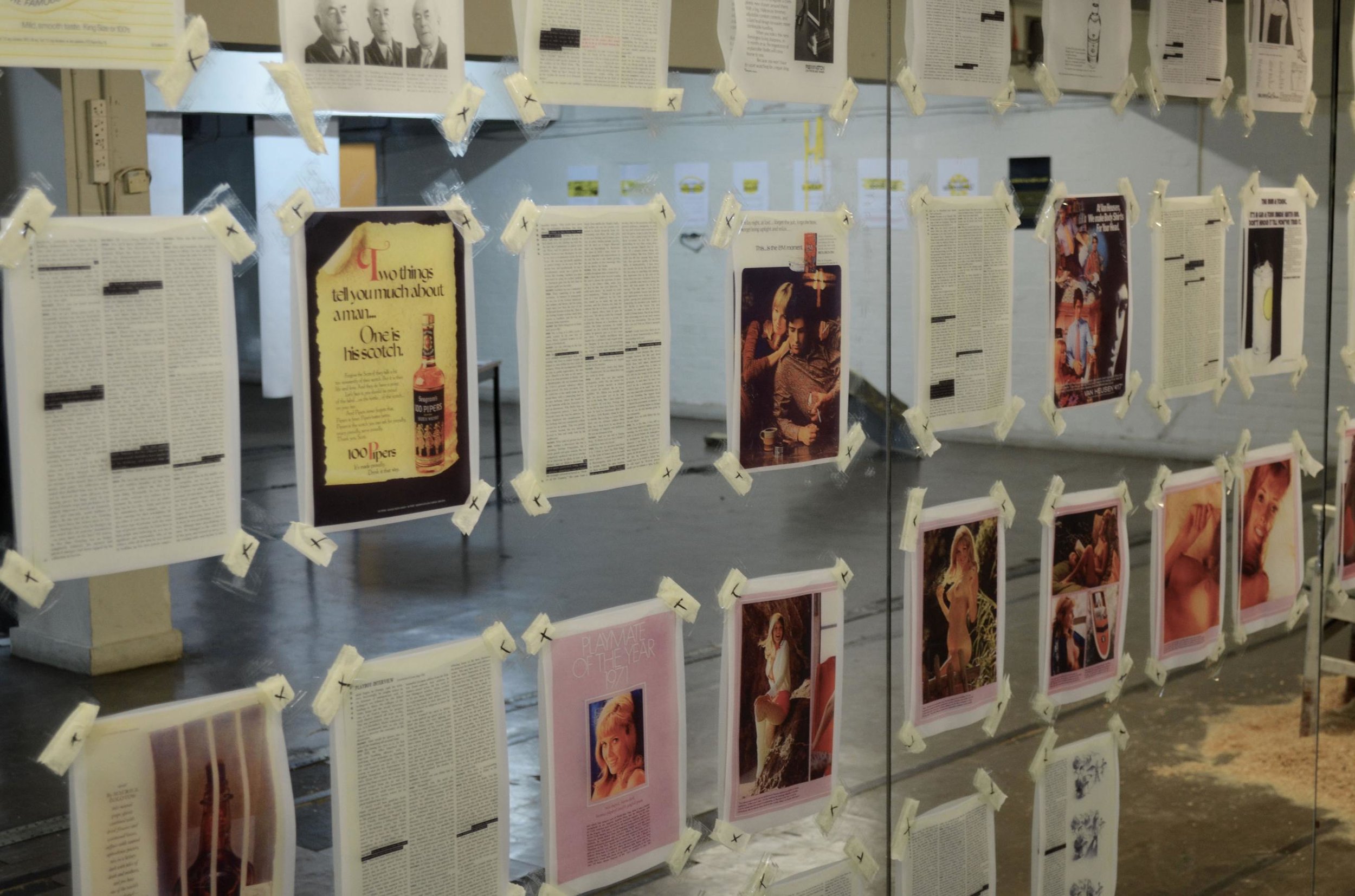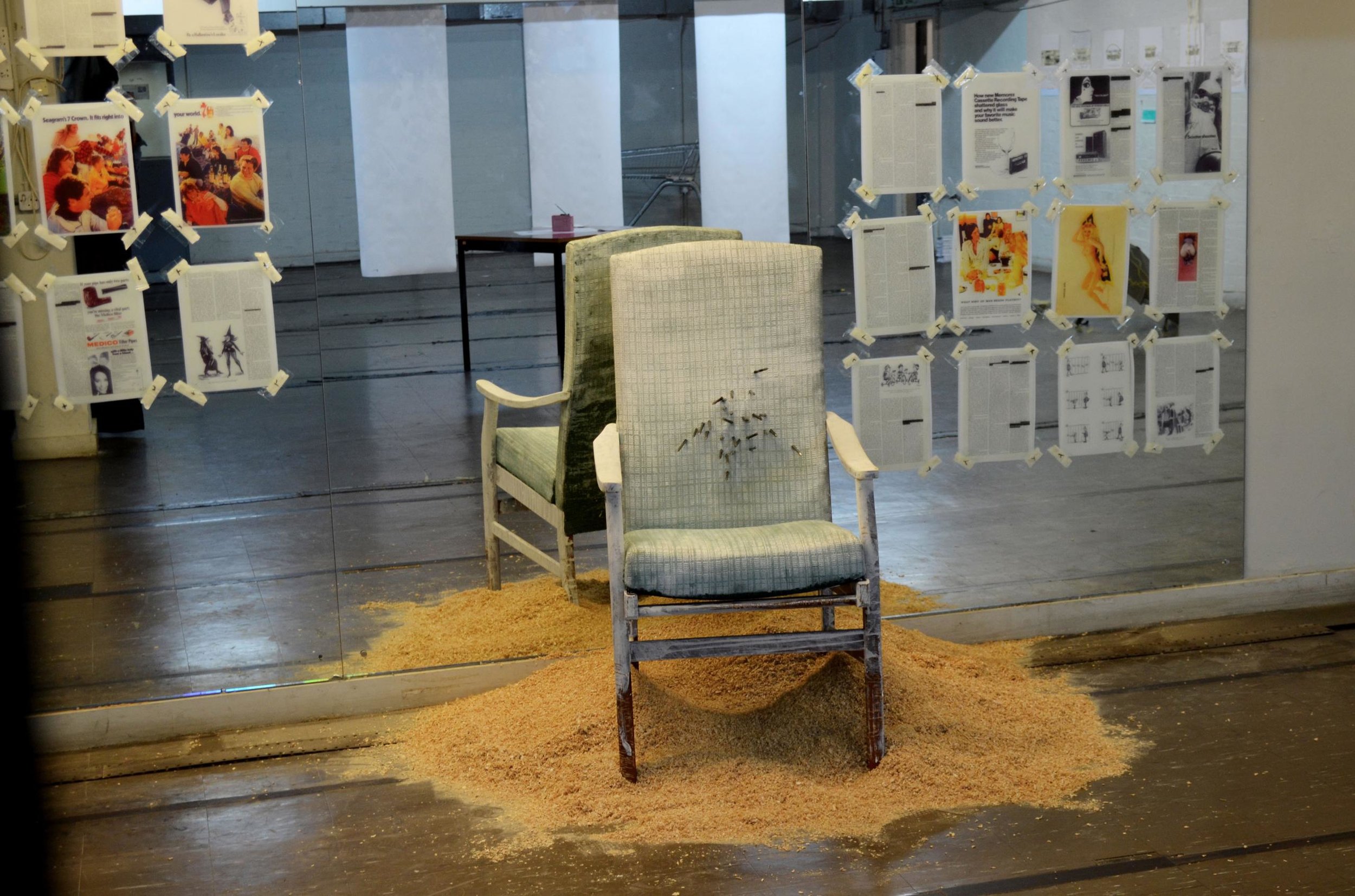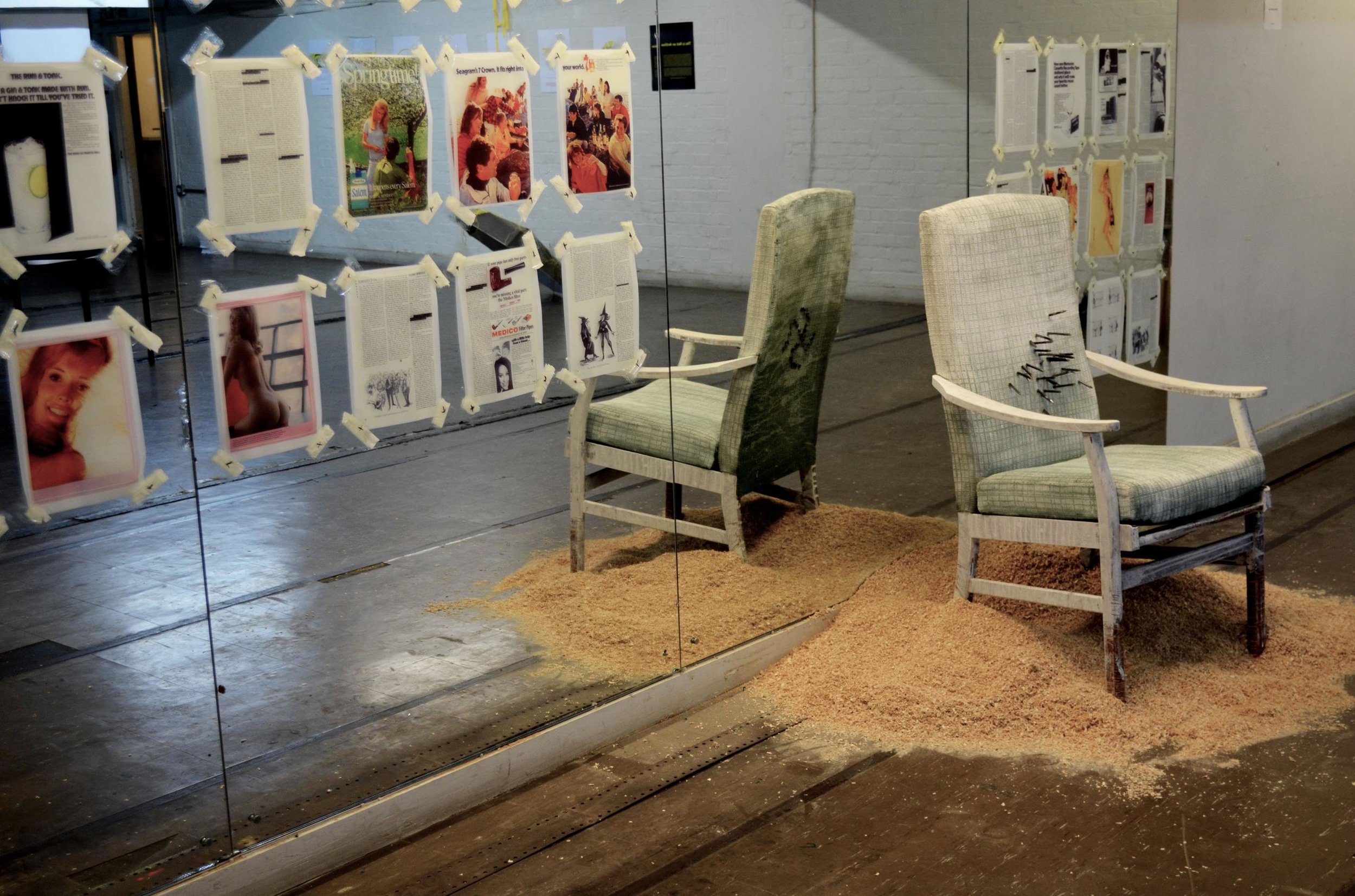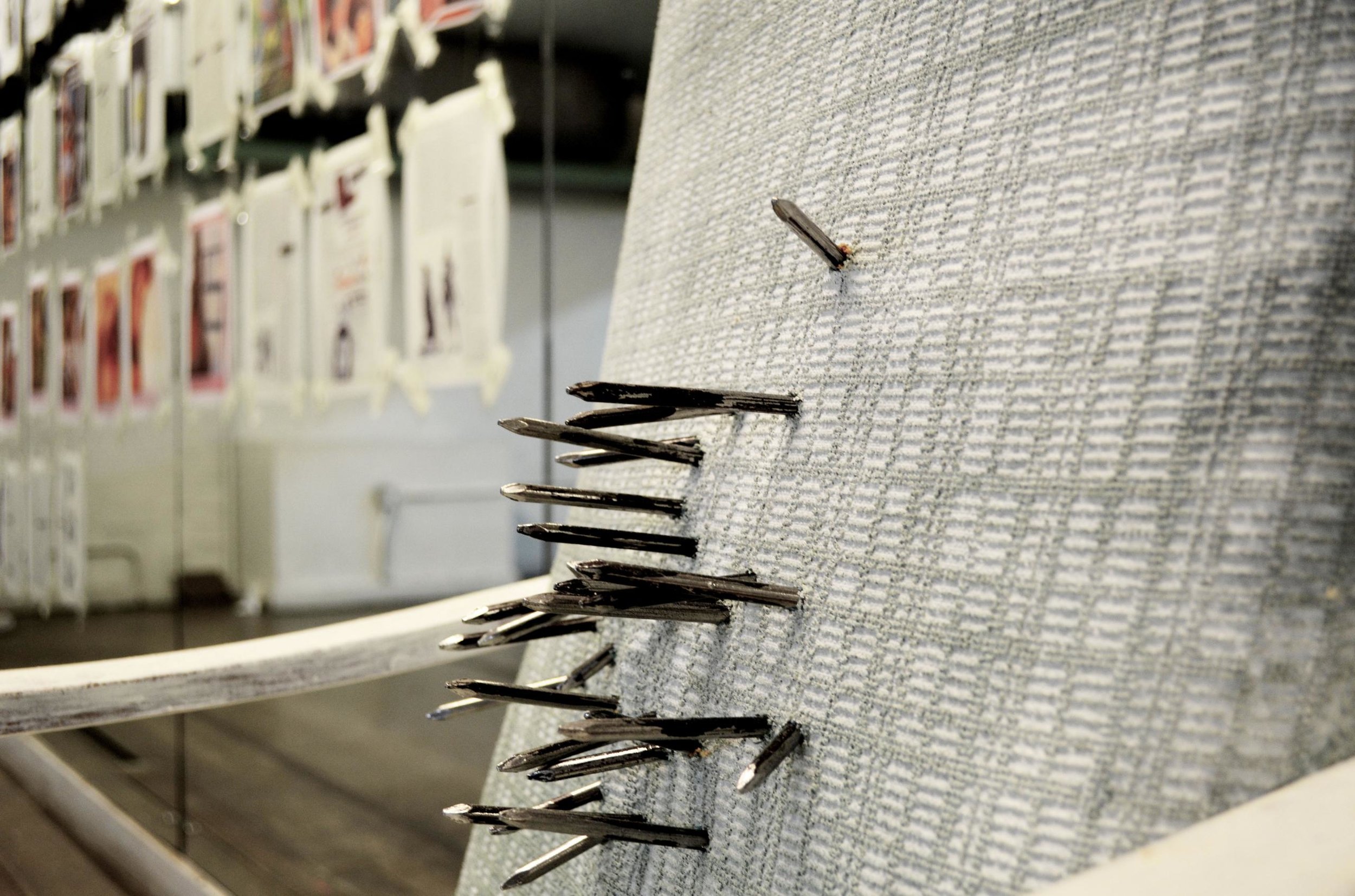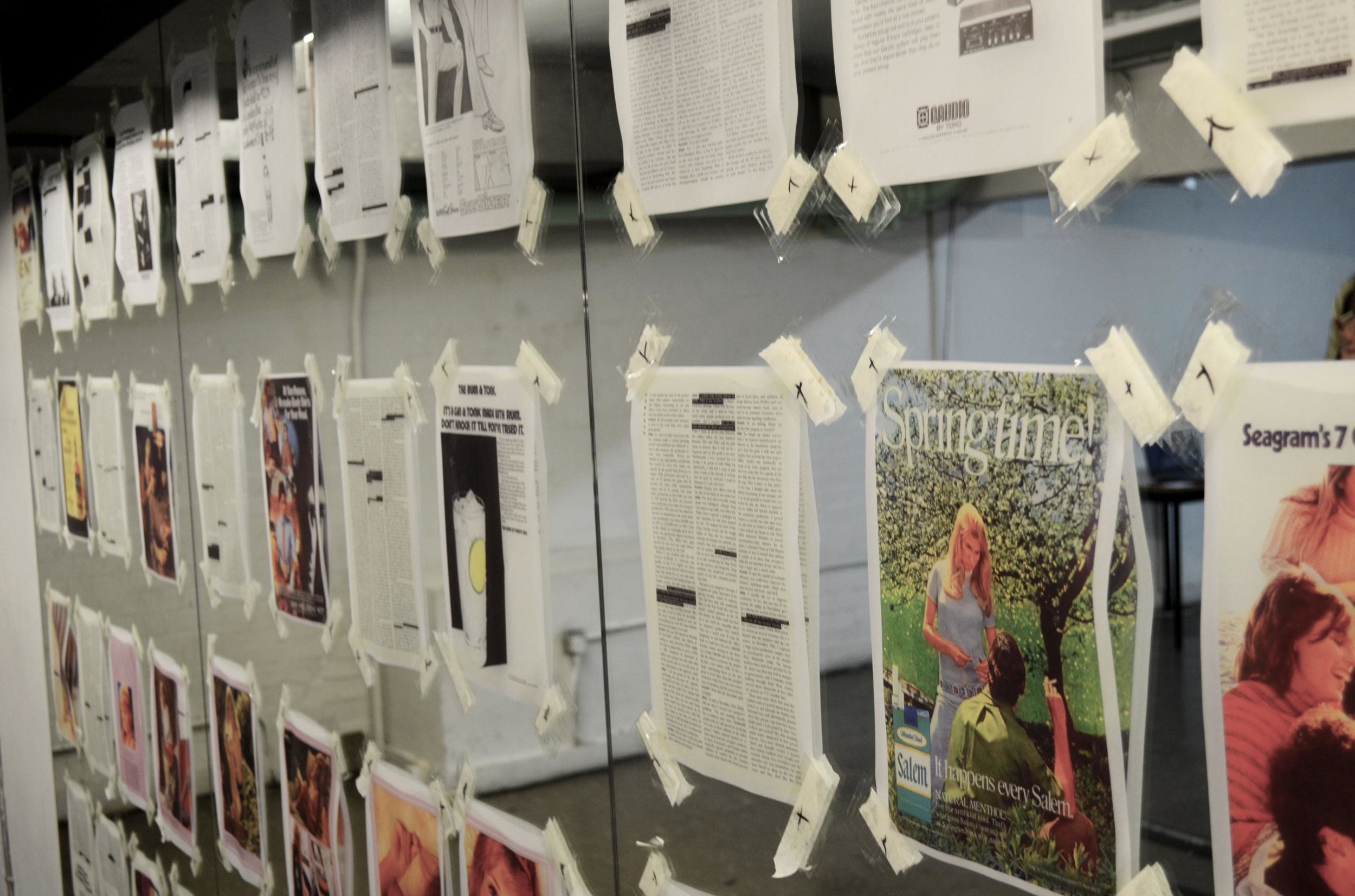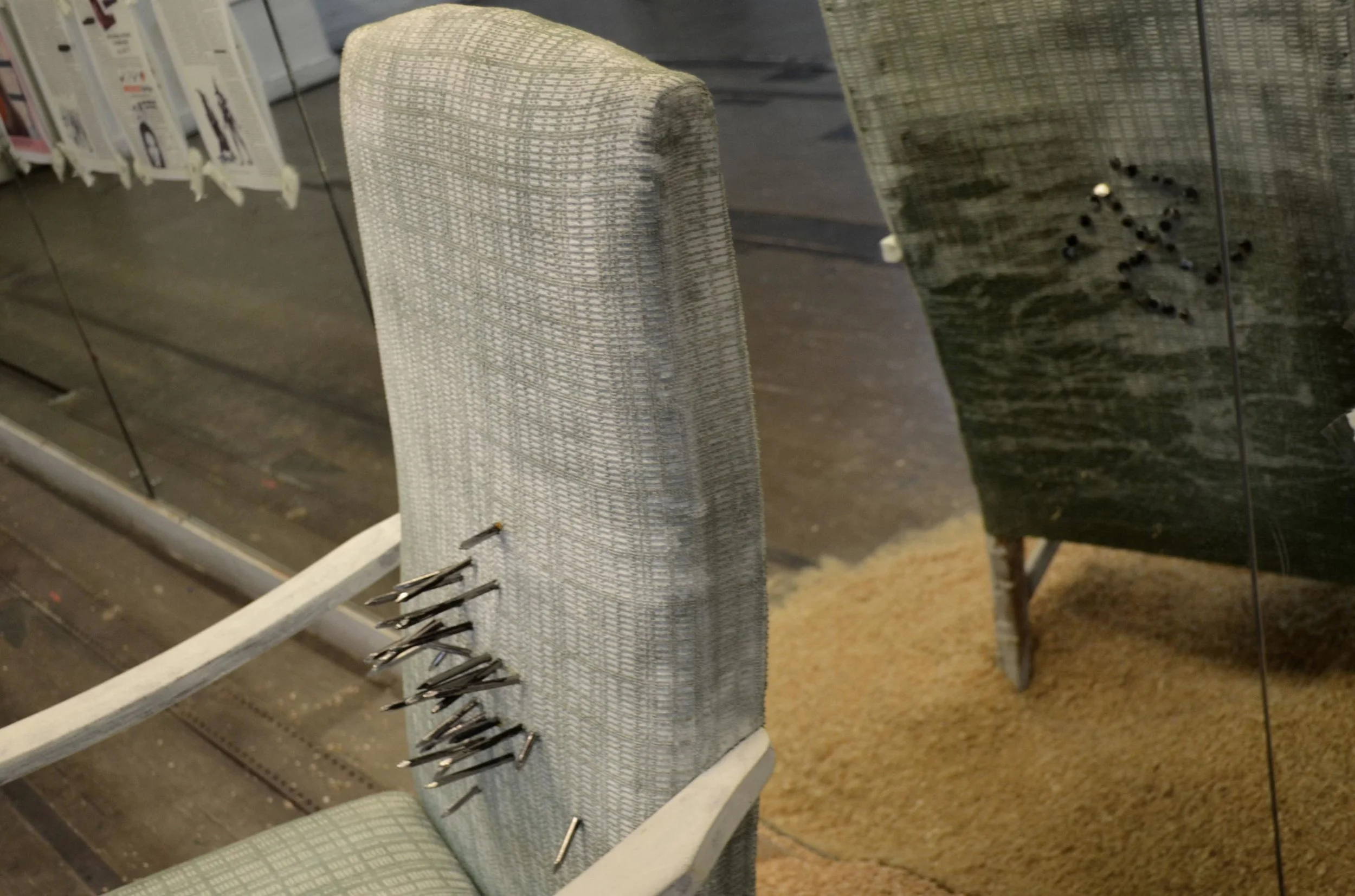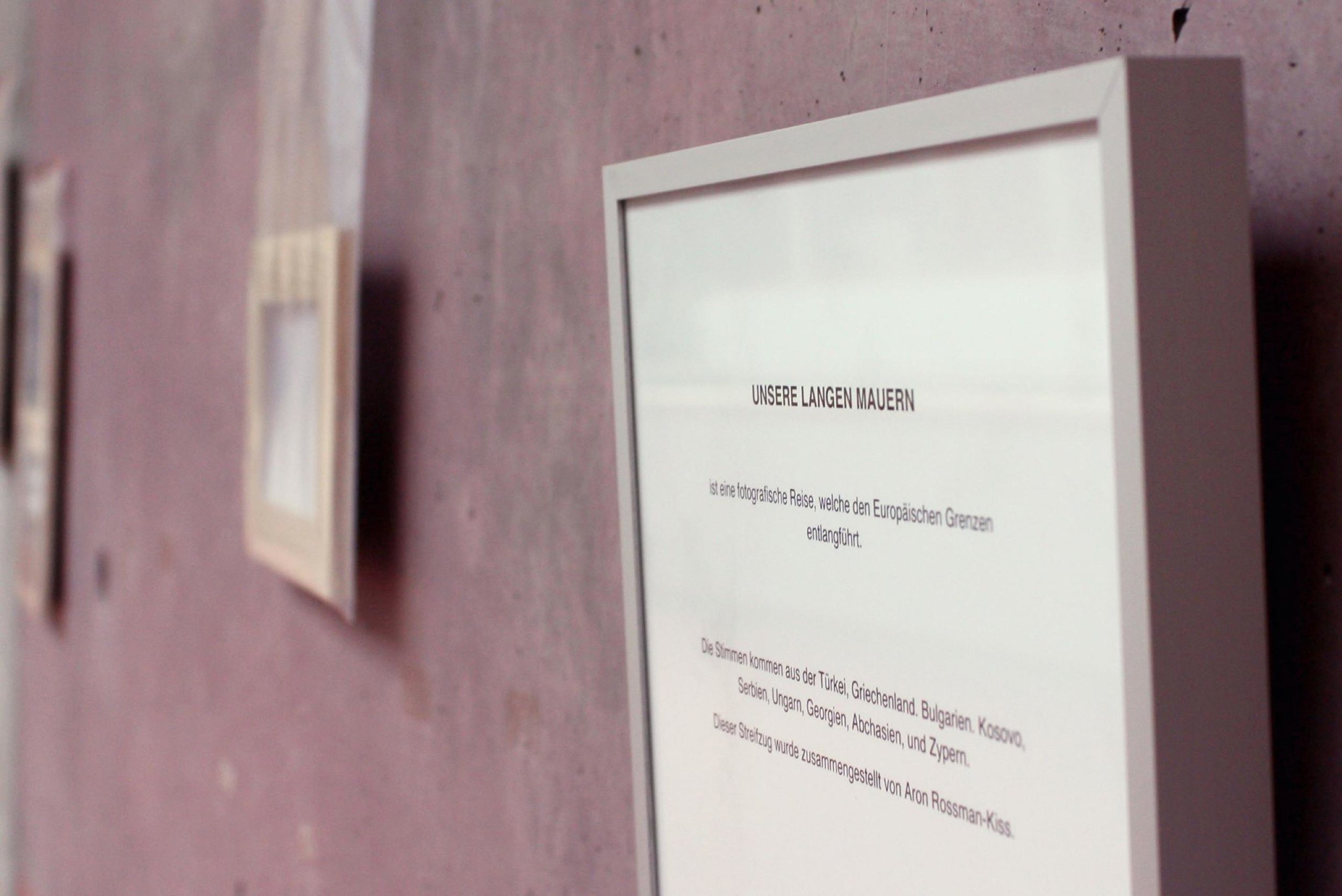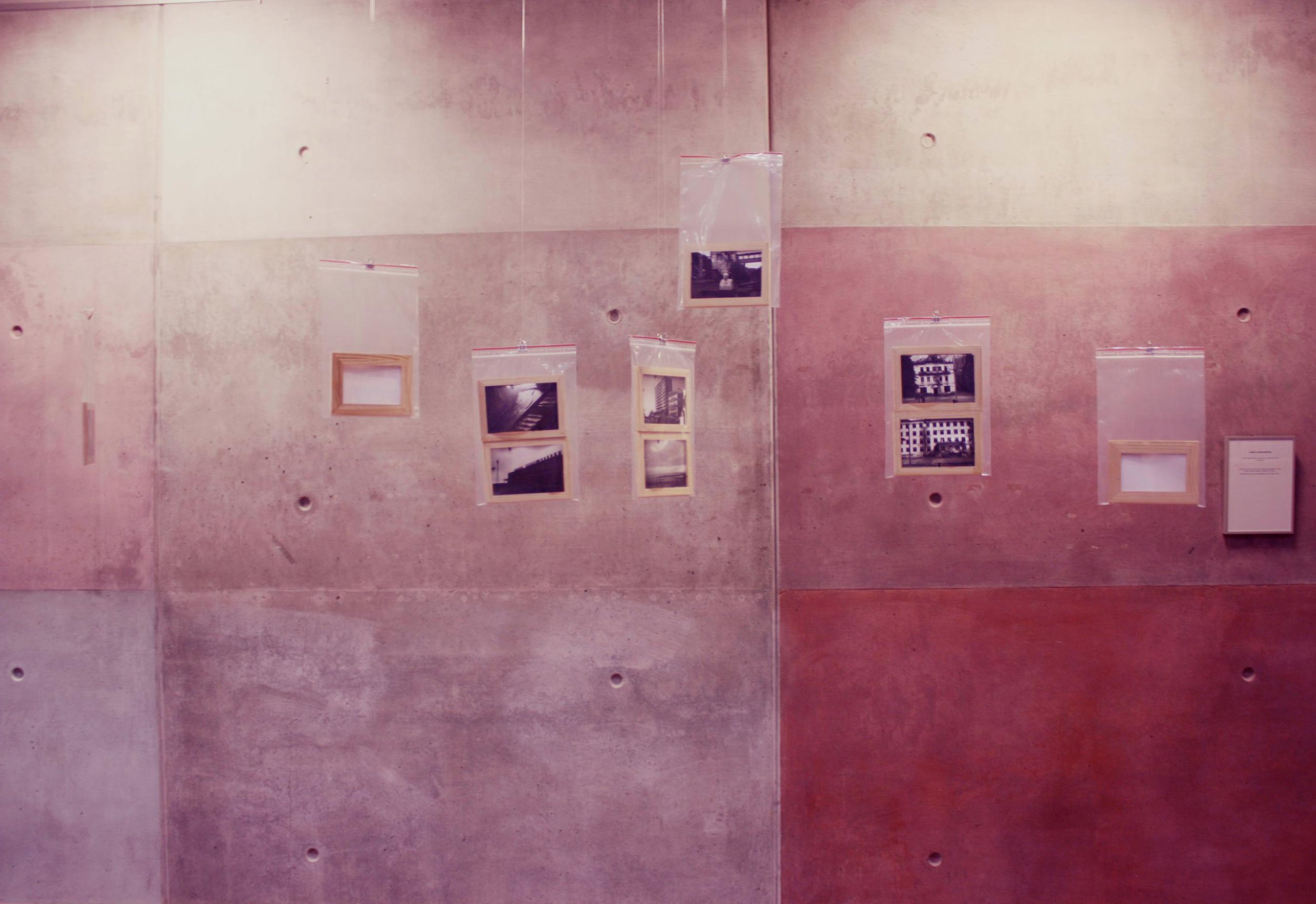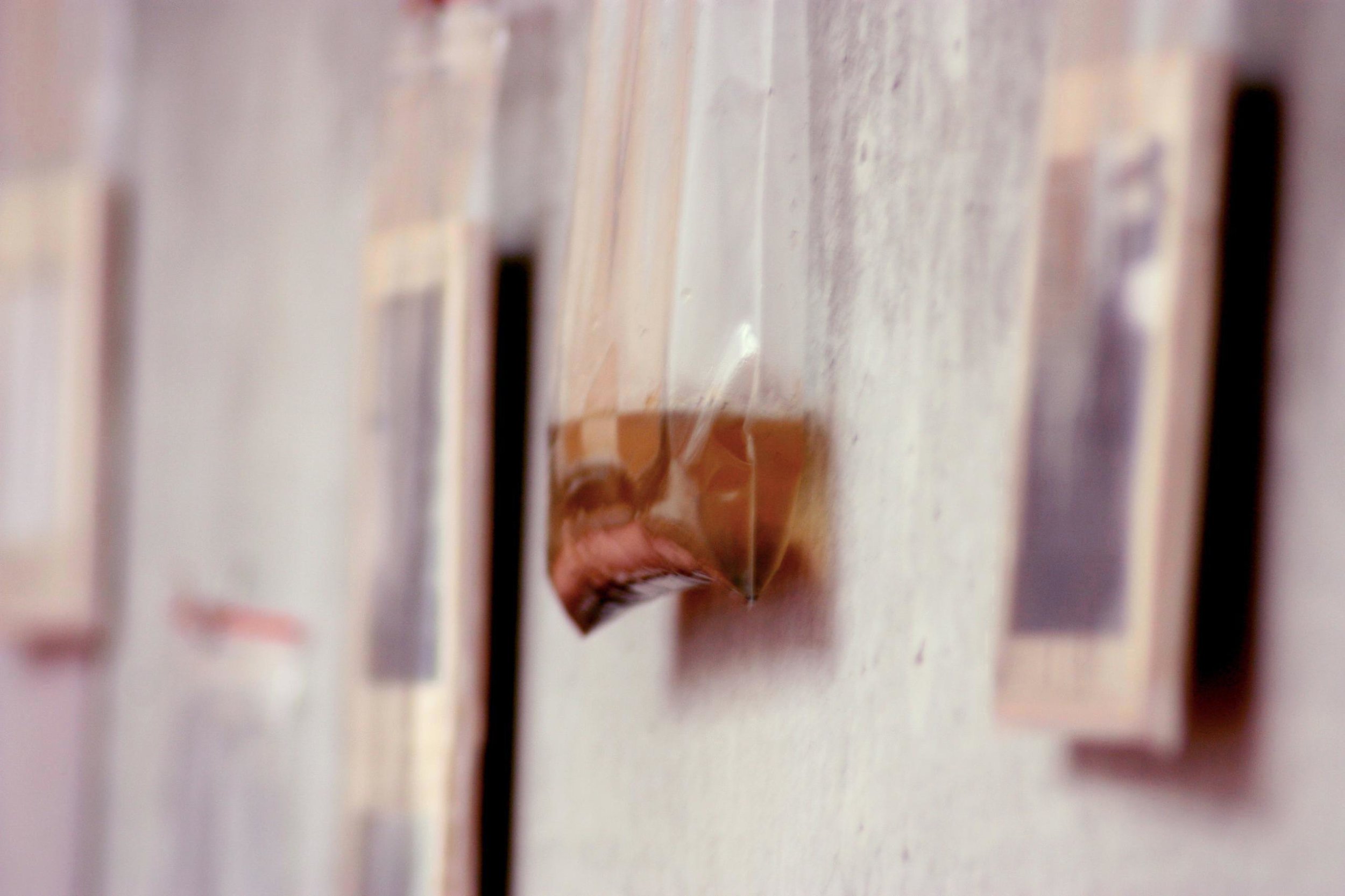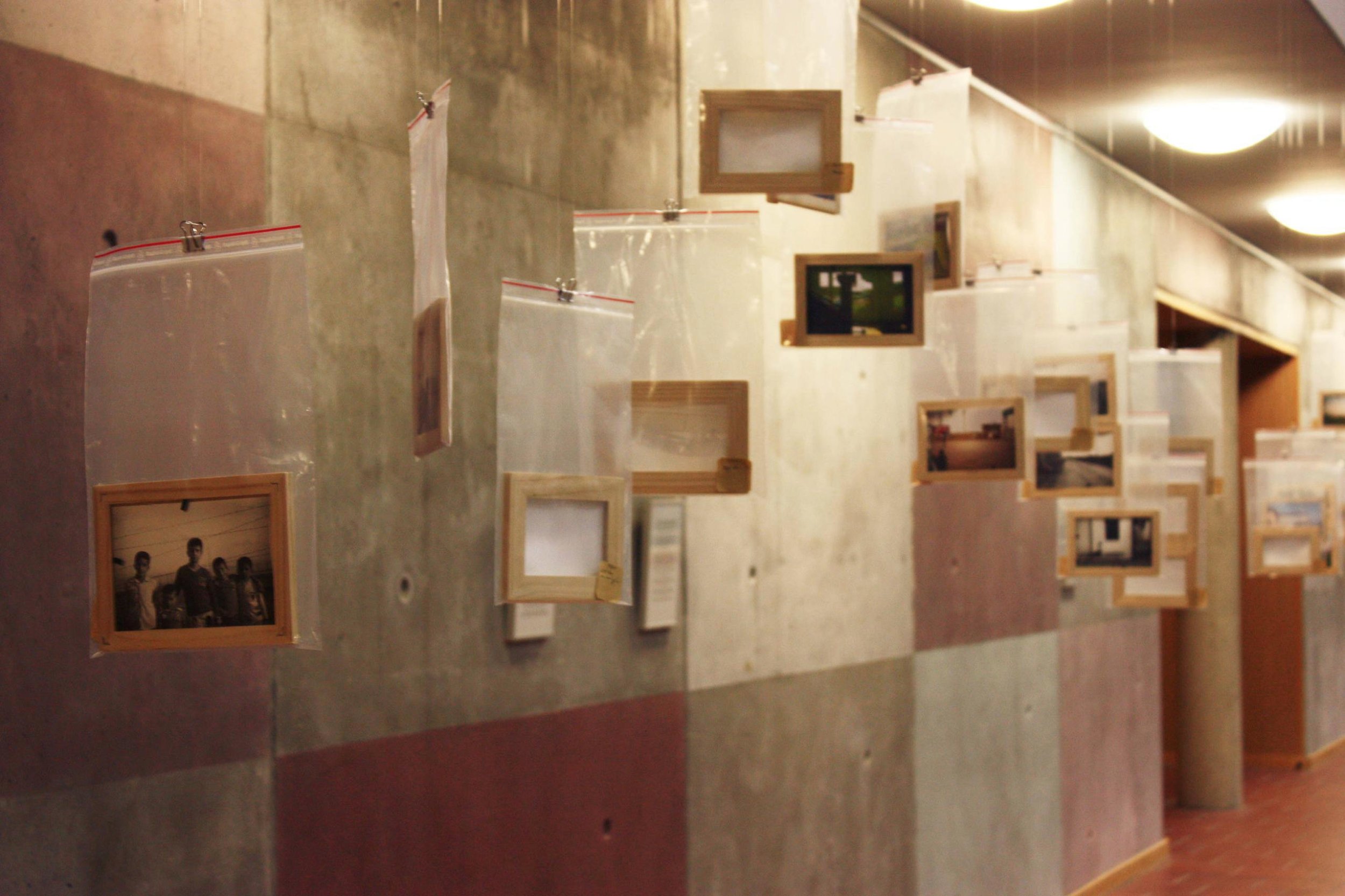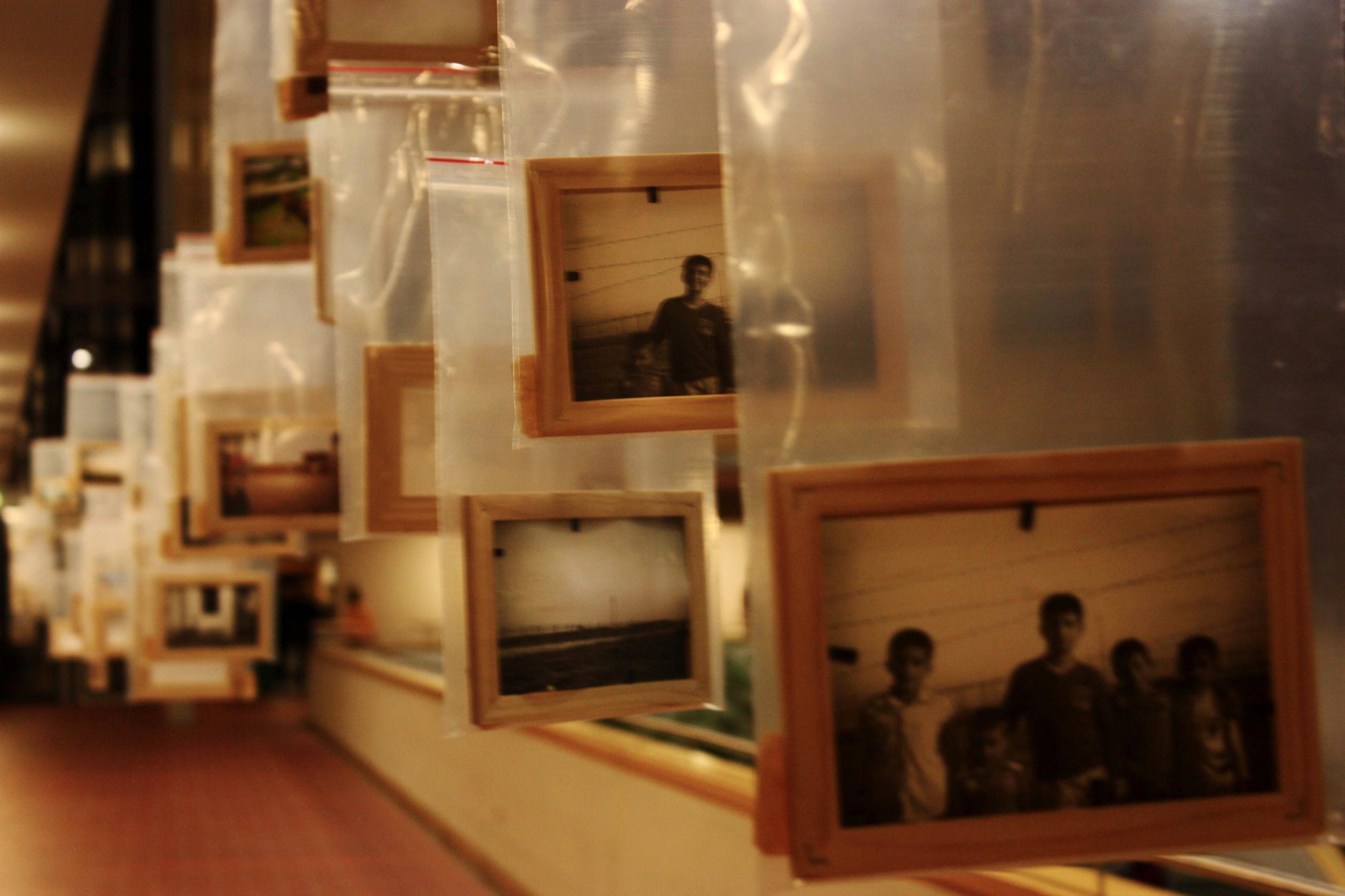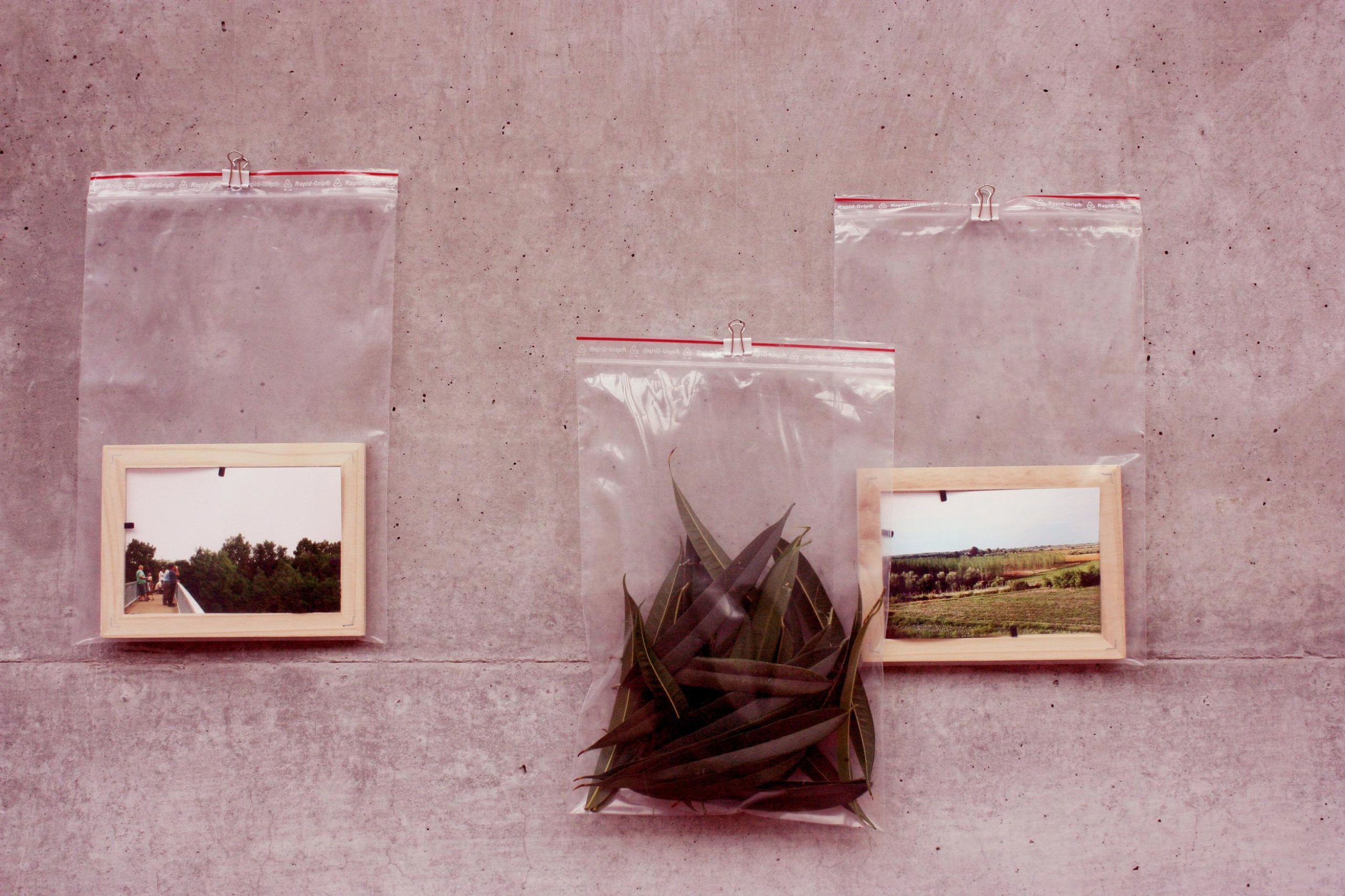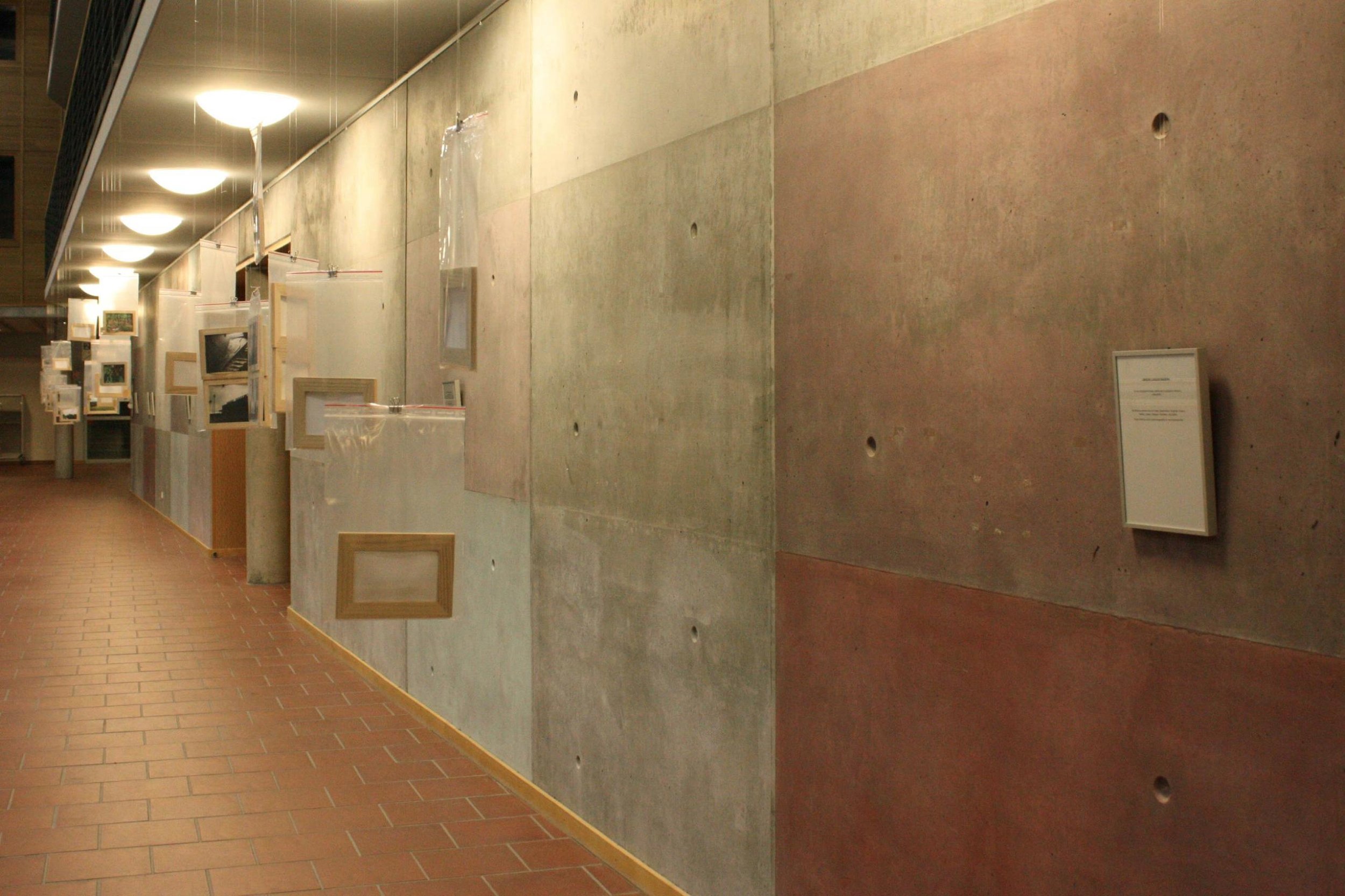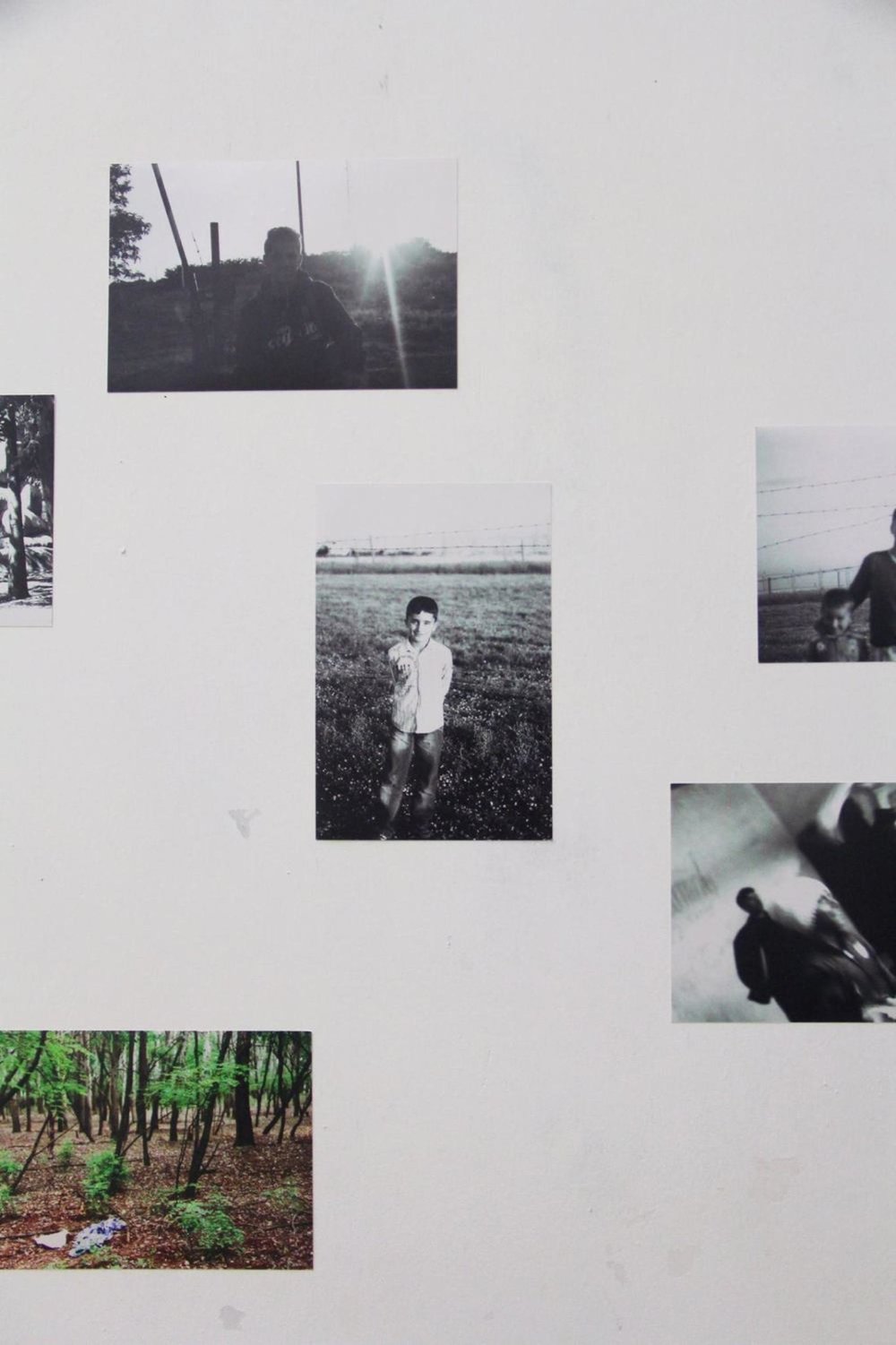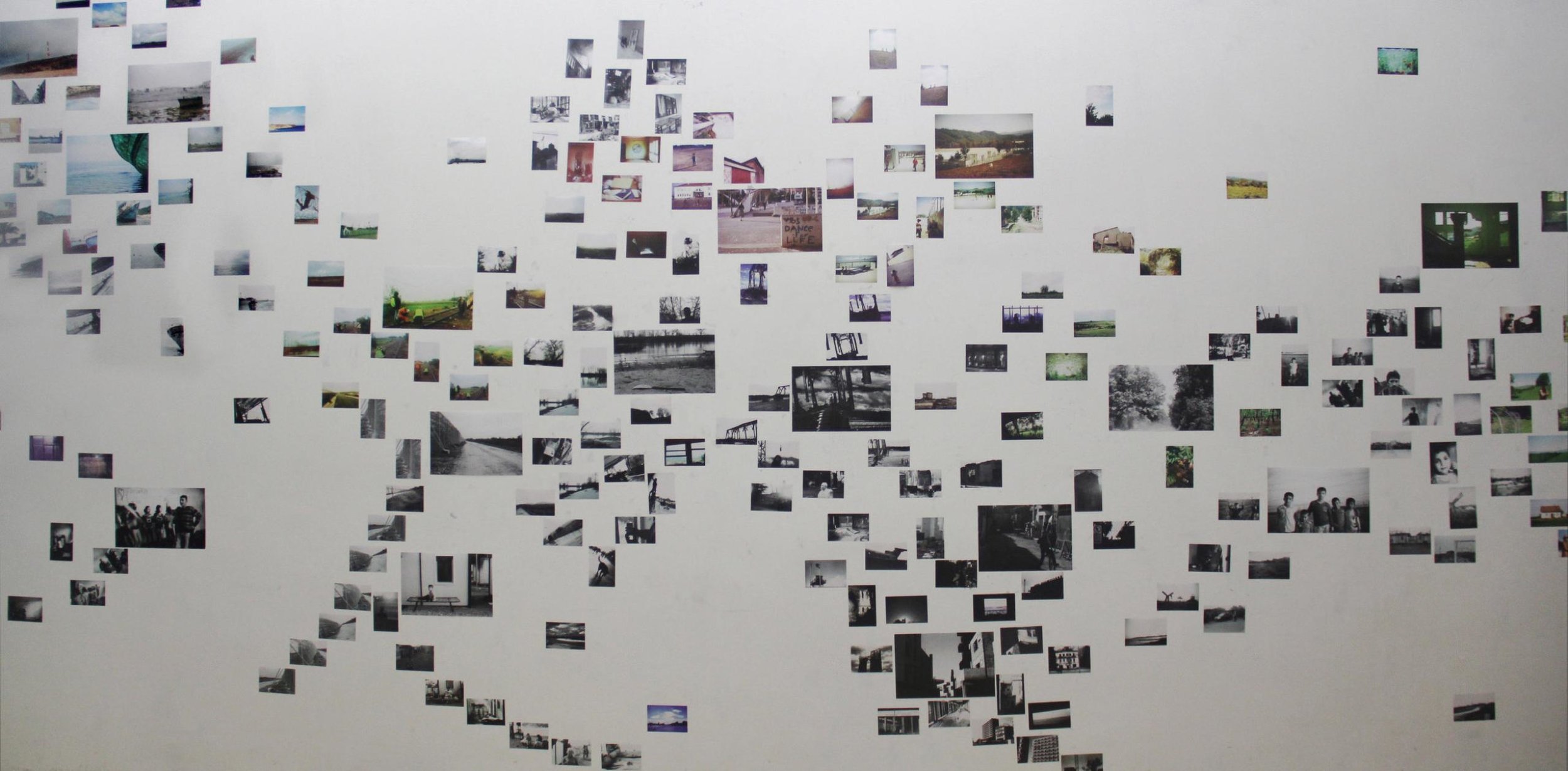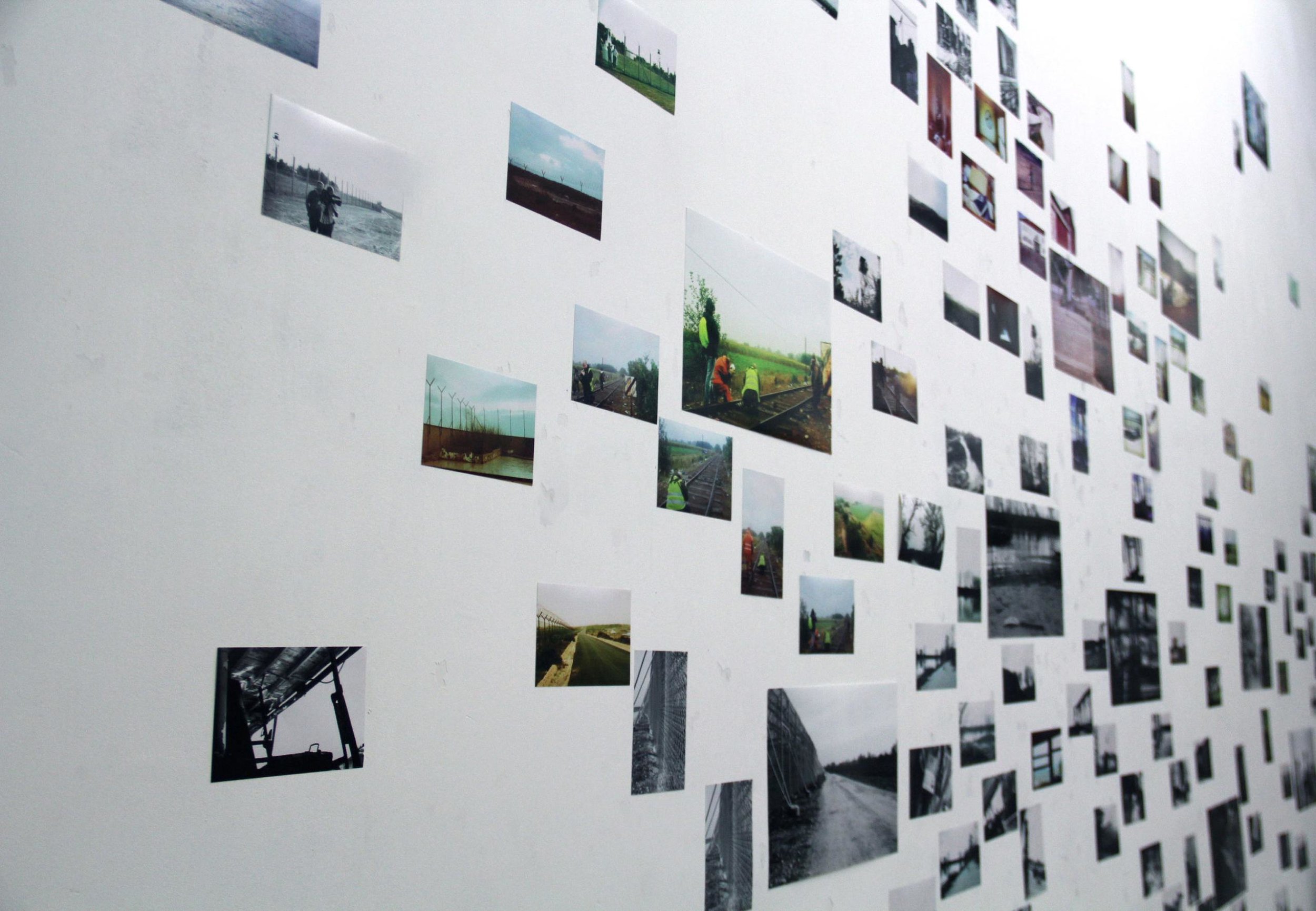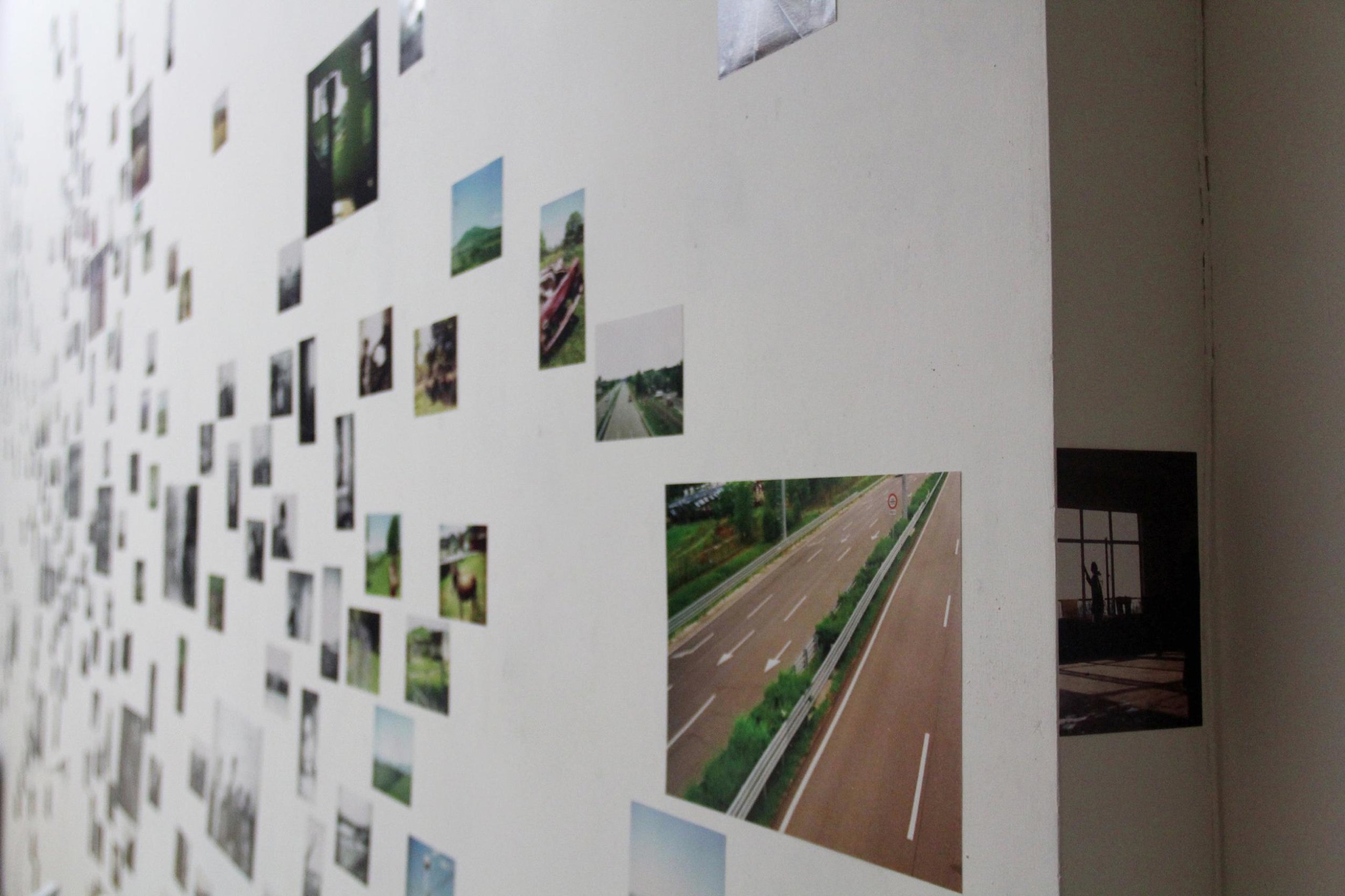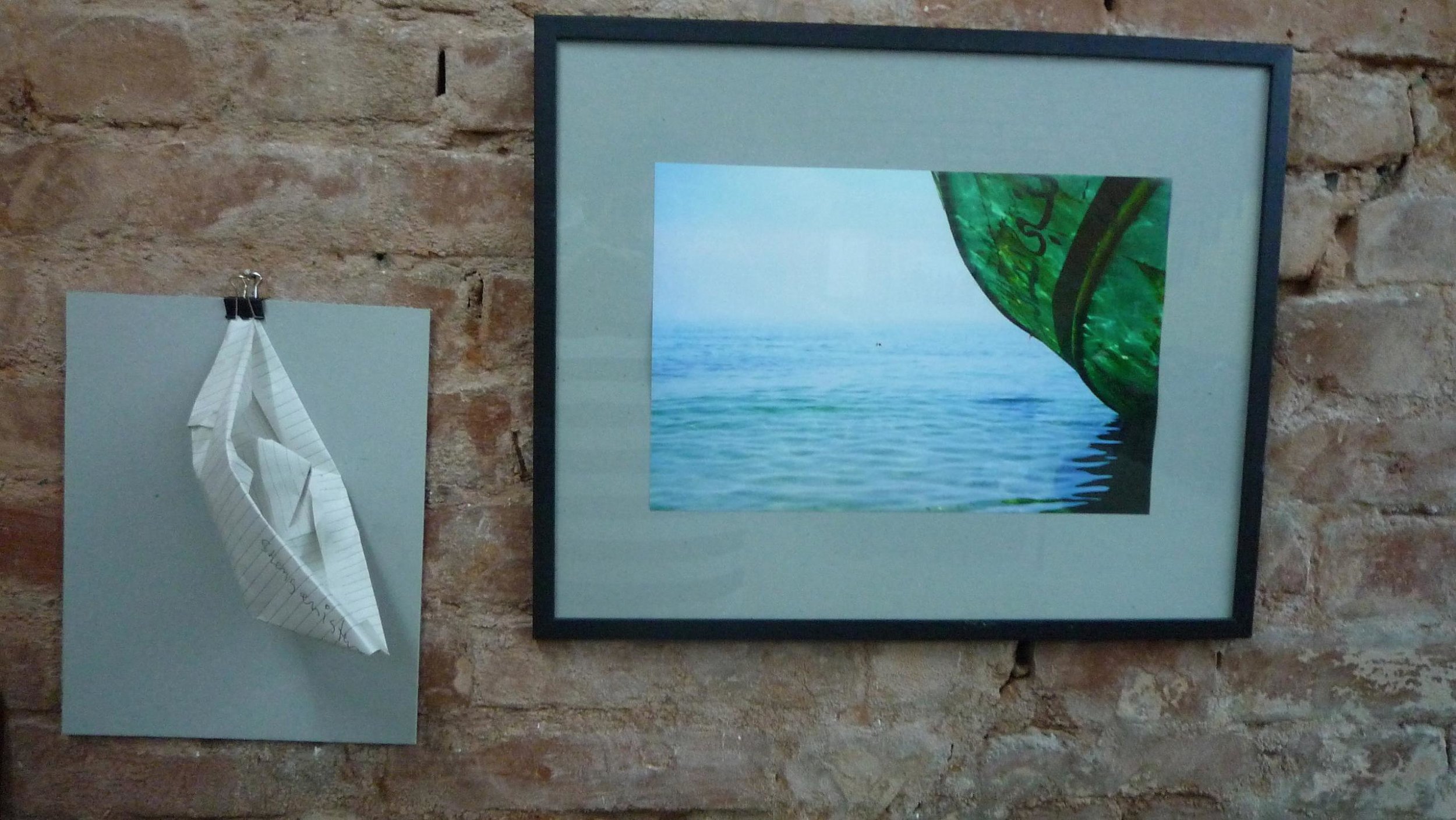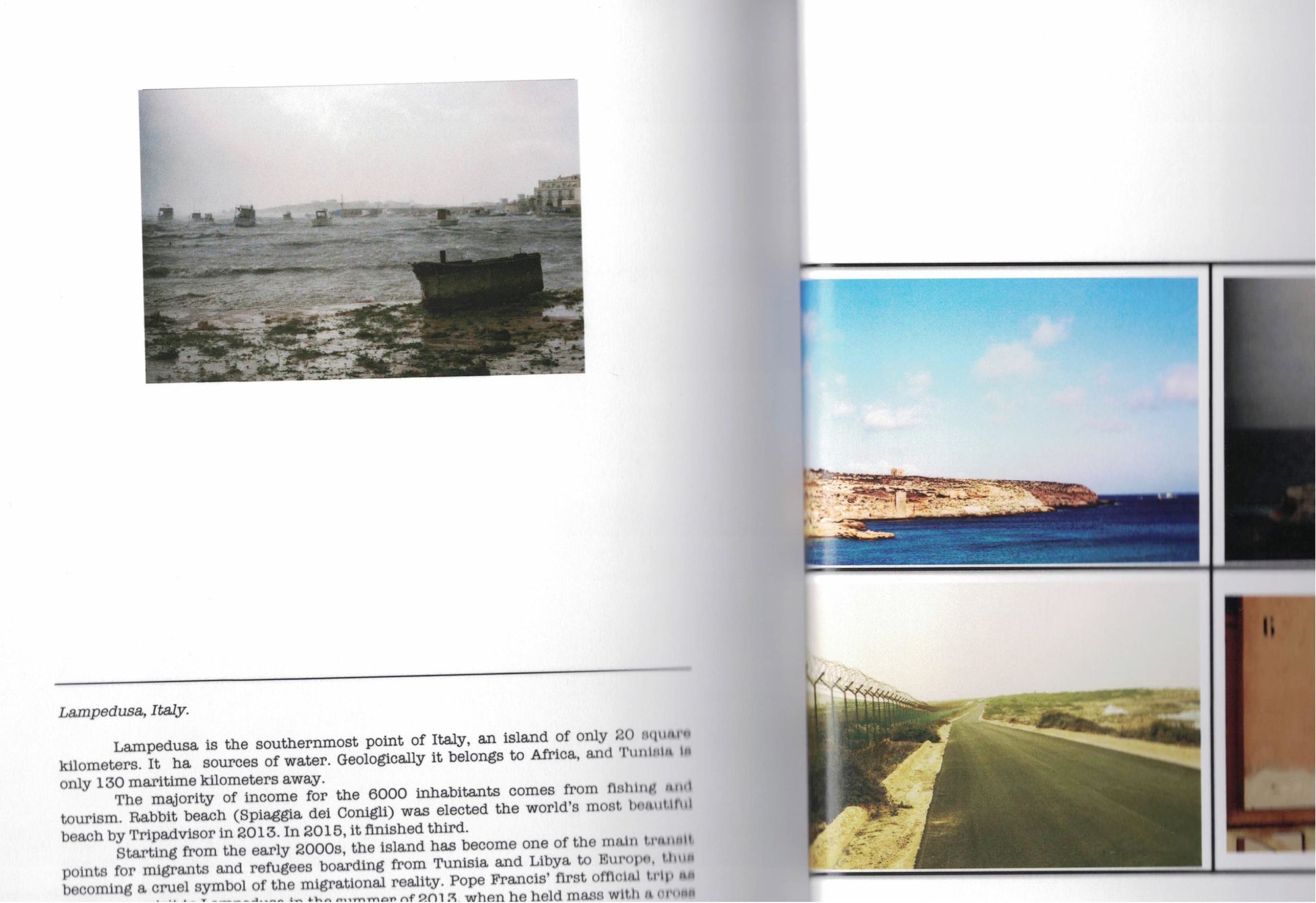Their lines have grown soft (2019)
Their lines have grown soft is the first iteration of an ongoing research about the Russian avant-garde. Bringing together performance, video and installations throughout a series of spaces, it evokes the avant garde’s gradual demise and the shrinking space of modernist art under stalinism.
Visitors are invited to wander through a series of rooms, each evoking a specific moment, ranging from 1924 to 1940. A fictionalised re-enactment of Malevich’s funeral or an “exiled constructivist’s” texts confront the visitor along meticulously researched snippets and atmospheres. Mingling gestures of reenactment, commemoration and fiction, it aims to sketch the boundaries of art’s possible claims and dangers.
Papers of Kit (2018)
Papers of Kit recounts an encounter with a man who calls himself Marlowe. A mysterious and magnetic figure, his relationship with the author sees them explore the underbelly of London and in particular Deptford — the same area where the Elizabethan poet Kit (Christopher) Marlowe was assassinated at the end of the 16th century.
The exhibit showcases muskets bullets and original 18th and 19th century prints. To guard these artefacts, an invigilator named Chris (Kit) was hired and tasked with taking care of visitors. He gradually starts using this occasion as a platform to air his opinions and grievances regarding both the artist and the work. While seductive with many viewers — discussing race, gentrification and poetry — he also claims at times to be the real author of the piece and even sells parts of it.
A work that explores what lays at the edge of poetry and theatre, while simultaneously evoking Deptford’s rich and shifting history.
Presented in the framework of the exhibition "All places shall be hell that is not heaven" at Bilt Mansions, Deptford.
NEWS (2018)
NEWS is an installation made of wood and two brooms. Under the wood chipping, viewers can RECOVER wood engravings reproducing 4 prints from Goya’s Disasters of War (1810-1820) before having to COVER IT UP. Through these actions, visitors become active participants in the work : swaying between forgetting and remembrance, and the complicity and guilt that these processes can trigger. At the intersection of playfulness, craft, and the cycles of creation and war.
Presented at the Goldsmiths MFA interim show 2018, London.
_____Of the Future (Feminist) Housewife (2018)
_____ Of the Future (Feminist) Housewife is a piece that was created following an interview with a sex worker. The works attempts to link two snippets from our conversation related to prejudice and personal dreams and goals. In the words of curator Aubree Penney: “It addresses the prejudices which accompany women’s choice of labour — be it sex work, domestic work or otherwise. The work examines the moralising of desire, which is instilled even in childhood.”
Presented at the “Outside” Exhibition — for which artists were paired for interviews with sex workers — at Cross Bones Graveyard, London.
6 Weeks with Albert Speer (2018)
In 1971, a few years after his release from Spandau Prison, Albert Speer gave an extensive interview to Playboy Magazine. In it, Hitler’s former architect and Minister of Armament — one of the most important figures of the Third Reich — gives a simultaneously elusive and self-incriminating account of his role in the regime and reflects on the dehumanising face of totalitarianism.
The interview is spread throughout the magazine and the reader has to leaf through photos, adverts and others texts in order to access it. 6 weeks with Albert Speer reproduces the interview in full with all the adjoining pages. In an attempt to reflect on our consumption of history, pornography, and horror, the work invites viewers to ponder their own position in regards to such material.
Presented as part of the “Overwriting” exhibition at the Archive Gallery /Rose Lipman Building, London.
Rev. Mordechai E. Blaze (2018-)
In the wake of the 2018 nation-wide university teacher strike in the UK, the singular figure of Rev.Mordechai E. Blaze emerged. A tireless orator dedicated to justice and education, he has been seen conjuring and exorcising with an iron will and a pure heart.
He can be followed on twitter.
Neuchâtel for you (2016)
A one-day exhibition/reading staged in Neuchâtel, presenting testimonies answering the question "What does Neuchâtel mean to you ?". By showcasing the city as a passage, where very diverse itineraries criss-cross and meet, the project aimed to underline the common experience of migration, travel and otherness as well as evoke the city as space shared by global travellers.
Our long walls (2015)
Our long walls is an invitation to explore the diversity of narrations and experiences linked to European boundaries. The presentation aims to illustrate the fluctuating and troubling relationship that link us - citizens, tourists, onlookers - to these realities. The exhibition consists of 60 photos; their showcasing evokes simultaneously an investigation (they are placed in zipper-locked plastic bags) and familiarity (their small format is inserted into small frames). Brief descriptions — mimicking different point of views — are placed along the wall; the photos are hanging, mid-air. The exhibition's space is thus created by a corridor formed by visitors’ movements; they must reach out towards the hanging bags in order to access the material and go back and forth between the wall in order to learn more about their content. On the bags themselves, the number of kilometres separating Frankfurt an der Oder from the location where the photo was shot serves as the only description. Between familiarity and abstraction, the showcased material forms a choir of conflicting voices.
Our long walls — a title echoing Thucydides — was first presented at at Viadrina University, Frankfurt an der Oder, Germany in 2015.
Catalogues / Sketch of Europe (2015)
Presented at a few day's interval in 2015, Catalogues and Sketch of Europe use the same material and methodology.
Sketch of Europe is an attempt to draw a mental map of Europe. More than 200 photographs collected during fieldwork from 2013 on are displayed, forming forests, rivers, seas, centres of army and press, refugee camps and, far away, lost at sea, the island of Lampedusa. Texts accompanying the photos are hanging at the entrance of the space, forcing the visitor to cross this forest of words before accessing the wall. The space formed by this dialogue allows the visitor to seek a way through the different threads — both visual and textual — and form their own itinerary.
Sketch of Europe was first presented in November 2015 at Studio 20, Yerevan, one of the very few independent art spaces in Armenia. The opening included a reading of excerpts of the texts.
Catalogues aims to offer the visitor an interactive and reflexive experience, questioning our relationship to borders and the link between text and image in the creation of a narrative. At first glance, the exhibition consists of 20 analog photographs presented without any text; commentaries, explanations and additional photos are provided by four different exhibition catalogues, each presenting a different perspective on the photos. Supplying the visitors with a vast material, Catalogues allows them to produce different narratives and experience the exhibition differently each time while simultaneously confronting them with their own representations of the borderland. Finally, it invites the viewers to contribute their own thoughts on the pictures, making them active participants in the work.
Catalogues was first presented at the Georgian Tapestry Museum in the framework of Artisterium contemporary art festival, Tbilisi, Georgia in 2015. During the vernissage, selected parts of the catalogues were read with musical accompaniment.
On the traces of the Argonauts (2014)
On the traces of the Argonauts: yesterday to today is a research travel project that won the first prize of the "Voyages extraordinaires" program awarded by the 1796 Foundation (Geneva). Its itinerary followed the Argonauts' mythical search for the Golden Fleece around the Black Sea and the Balkans, documenting through photographs and interviews the hellenic heritage left on their way.
The god's hollow (2012-2013)
Delphi: the God's hollow is the result of an extended stay in Southern Greece and Delphi that allowed for research on the conception of space in Antiquity. Through an approach both phenomenological and source-based, this article (published by Desmos, Lausanne) evokes the unique richness and beauty of Delphi's space.
